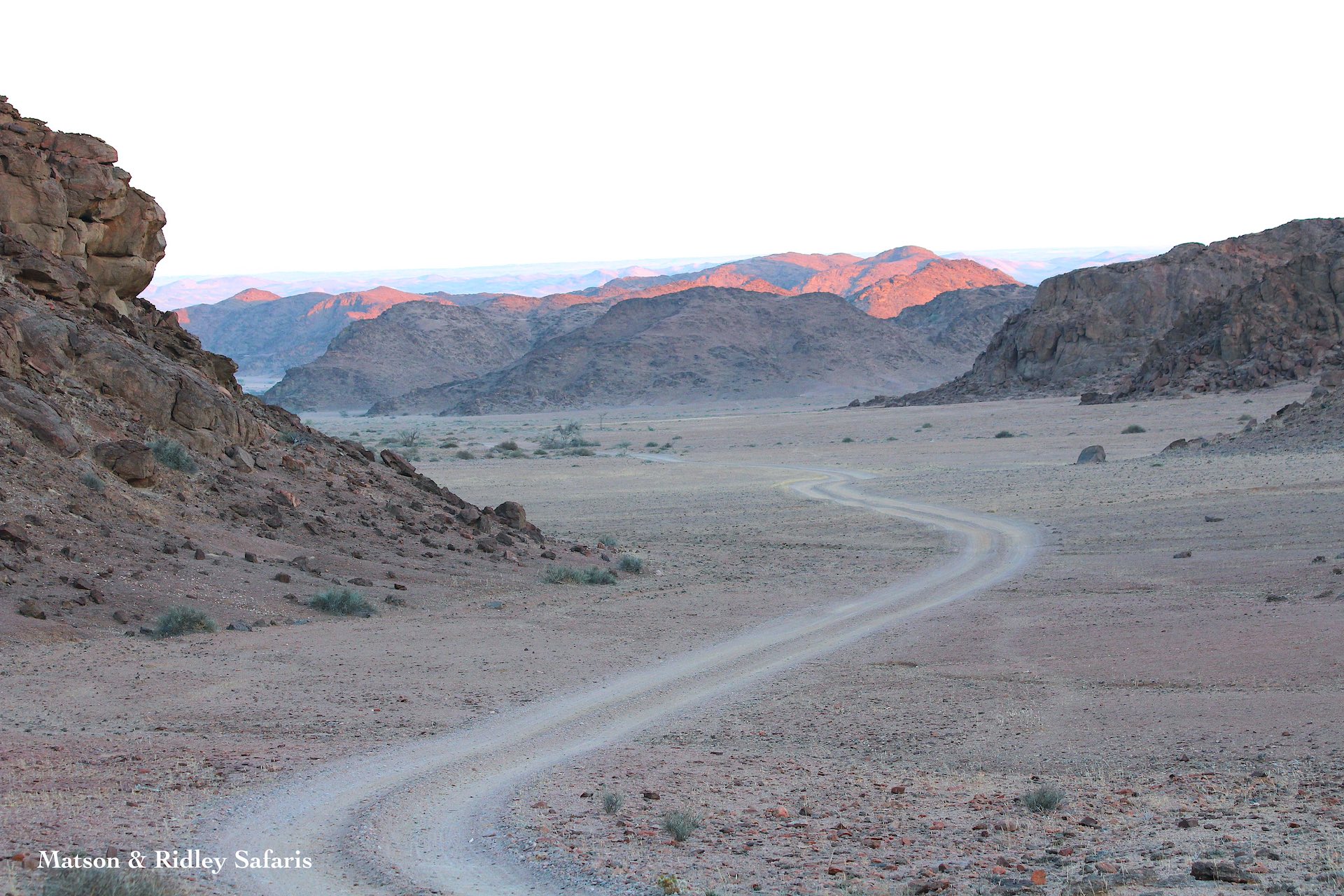Blog
This month we celebrate ten years of Matson & Ridley Safaris!
What a whirlwind of fantastic adventures and newfound friendships the last decade has brought into our circle. When Andy and I started Matson & RIdley Safaris back in late 2013 in Singapore, I was soon to give birth to our (now nine, almost ten year old) son, Shep. It was the beginning of a whole new era for our family in so many ways. Our boys have travelled with us to Namibia, South Africa, Kenya and Rwanda and we are planning on adding Botswana to that list very soon to visit the habituated wild meerkats on the Makgadigadi Pans. Life's too short not to build precious members with loved ones and there's nowhere like Africa for a life-changing, bonding experience. Most safari camps will take kids over the age of six and your children will LOVE this holiday as there is nothing else like it.
Looking back at this year, many of our guests who booked pre-Covid went on their long-awaited safaris and I wanted to share some of the highlights here. We are so grateful for all your support over the last decade. Please continue to spread the word and we hope to see you on safari soon!
Now is the time to book for 2024 so please don't wait to reach out to us to organise your safari for next year. You can now sign up to my Botswana safari next June, from 10-18th. I have two rooms left on this very special, personally guided safari in the Okavango Delta, including the zebra migration in the Makgadigadi National Park.
Choosing when to go to Africa can be half the challenge, so in this blog I'm focusing on two of the seasons you can consider travelling in Africa which are at two ends of the price spectrum but both absolutely brilliant in their own way. East and Southern Africa have quite different seasons, so in this blog I'm only considering East Africa. Deciding when to go is really important and it's worth talking to us early on so we can ensure you book camps in the right areas for the wildlife and at the best time of year for what you can expect to see.
green season in the serengeti, Tanzania
Aussies Pru, Lee, Natalie and Lynn travelled as a small group to the Serengeti in late May this year, during the green season. The big secret about travelling in the green season (December to May) is that you'll pay half the price of the peak season in Africa's winter months (July-August) and you won't be sacrificing on wildlife sightings because wildlife is brilliant year-round in the Serengeti and the climate is mild. You'll see amazing sunsets due to the clouds in the sky and enjoy feasting your eyes on green grasses after the wet season and lots of baby animals. Pru's group found the wildebeest migration on the open plains between Dunia Camp and Namiri Plains Camp in May, Pru toasted to her fortieth birthday with a stunning hot air balloon flight over the Serengeti followed by a champagne breakfast, and Lee got to test out her fab new camera (I'm sure you'll agree from her photos below, it's a good one!).
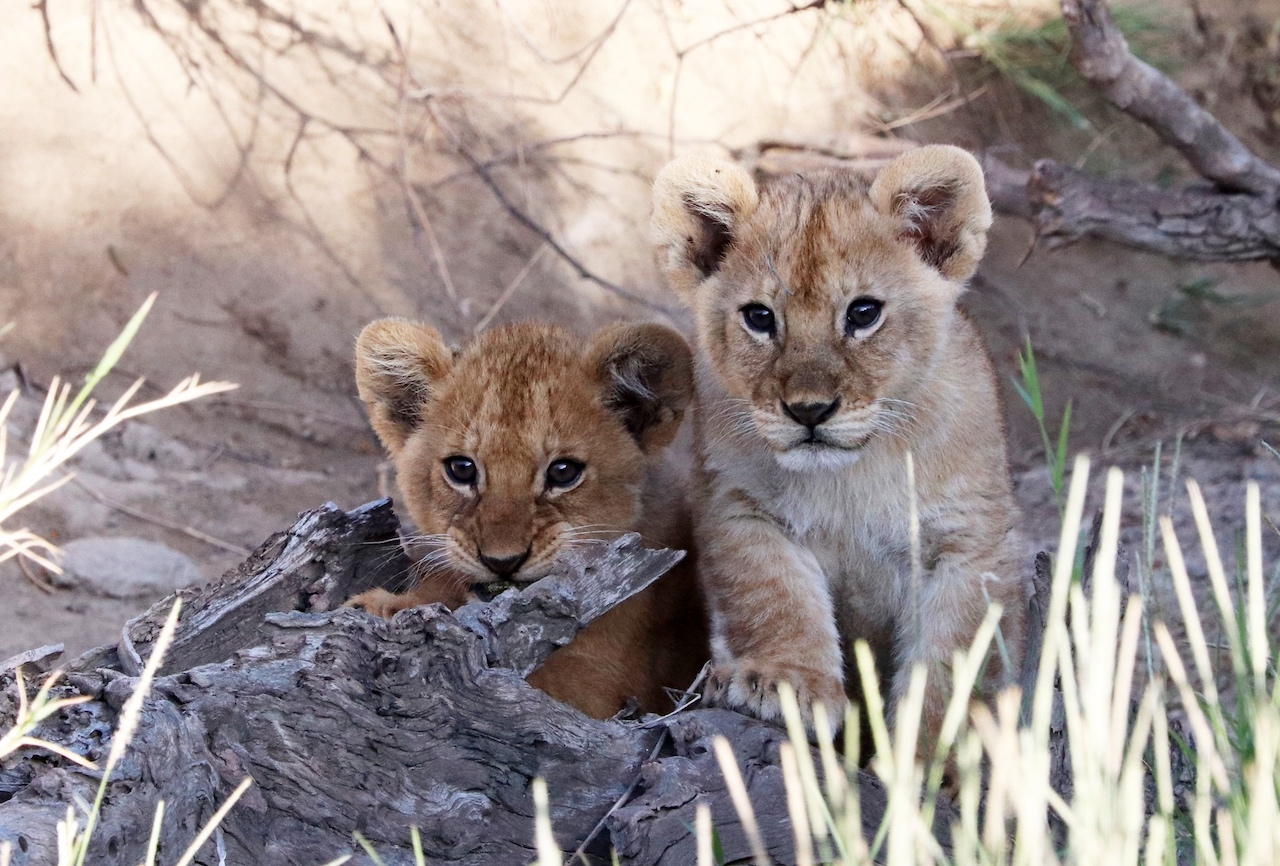
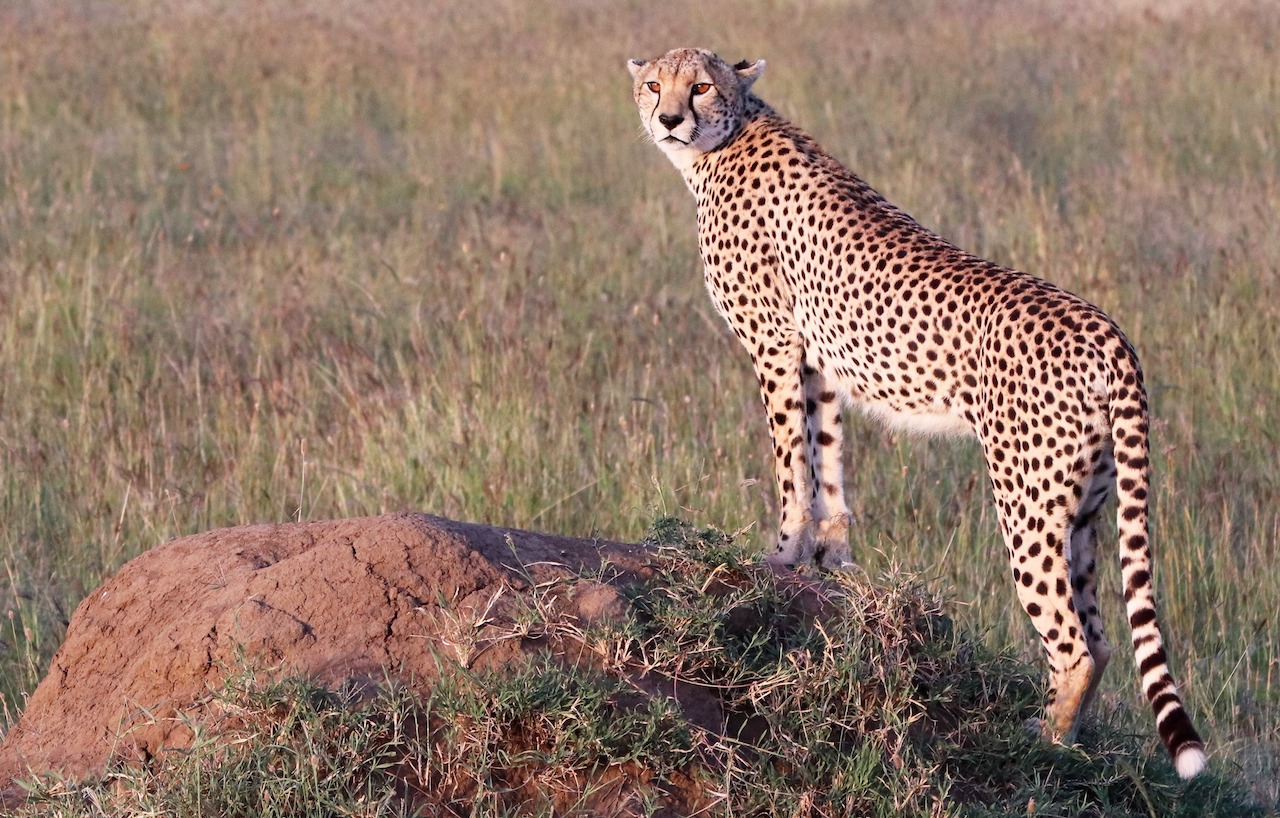
"It was a magical trip. I don't think I realised the impact it was going to have on me before I went. I guess we'd been talking about it for years, when it actually came time, I was like oh gosh, here we go! We got lucky with the animals; you got us the best guide. He understood our Aussie humour and he delivered on all the things we asked for. Being out on a game drive, hot water bottle in hand, wind in your face, was a moment I'll never forget."
Lee Vereschildt (first time in Africa)
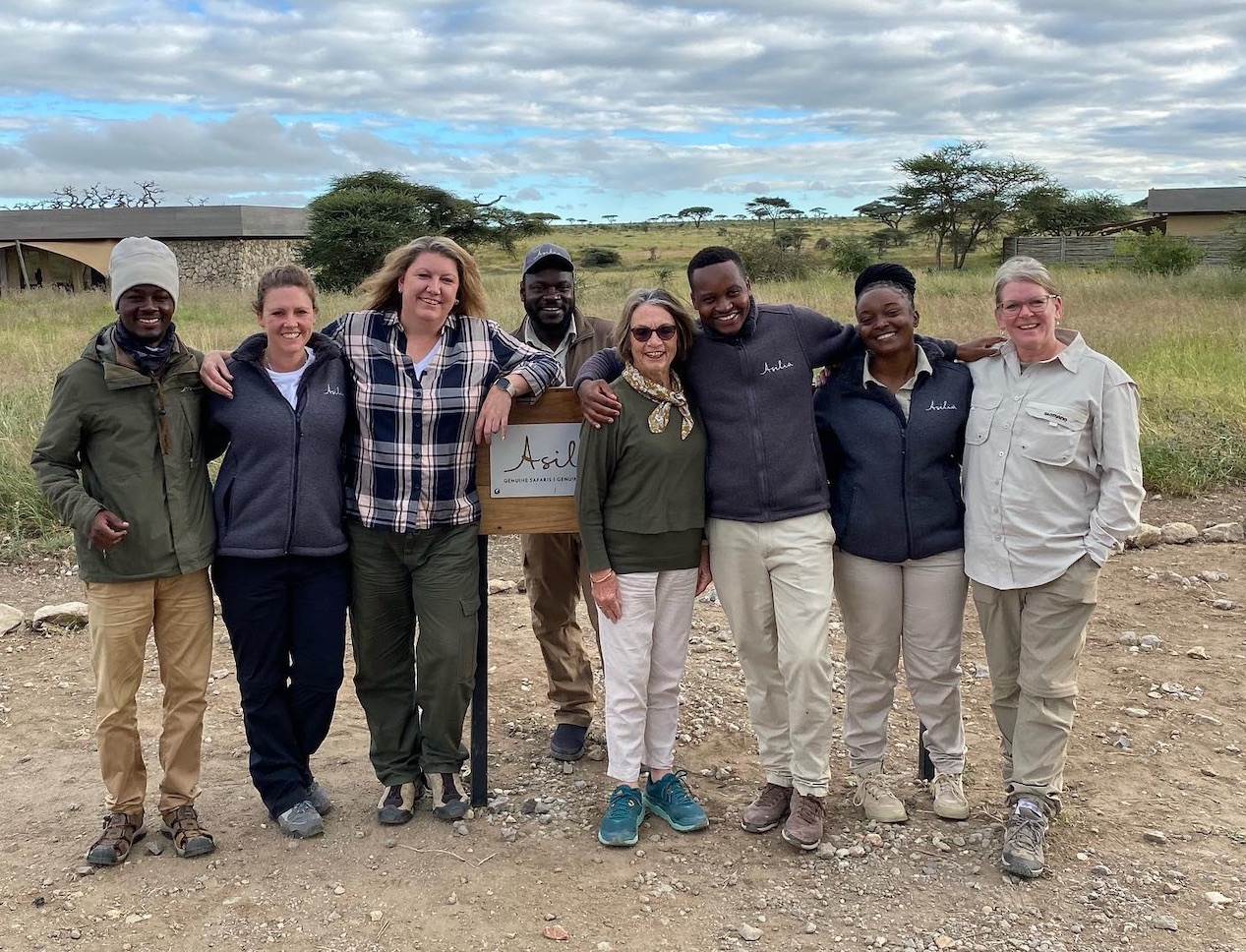
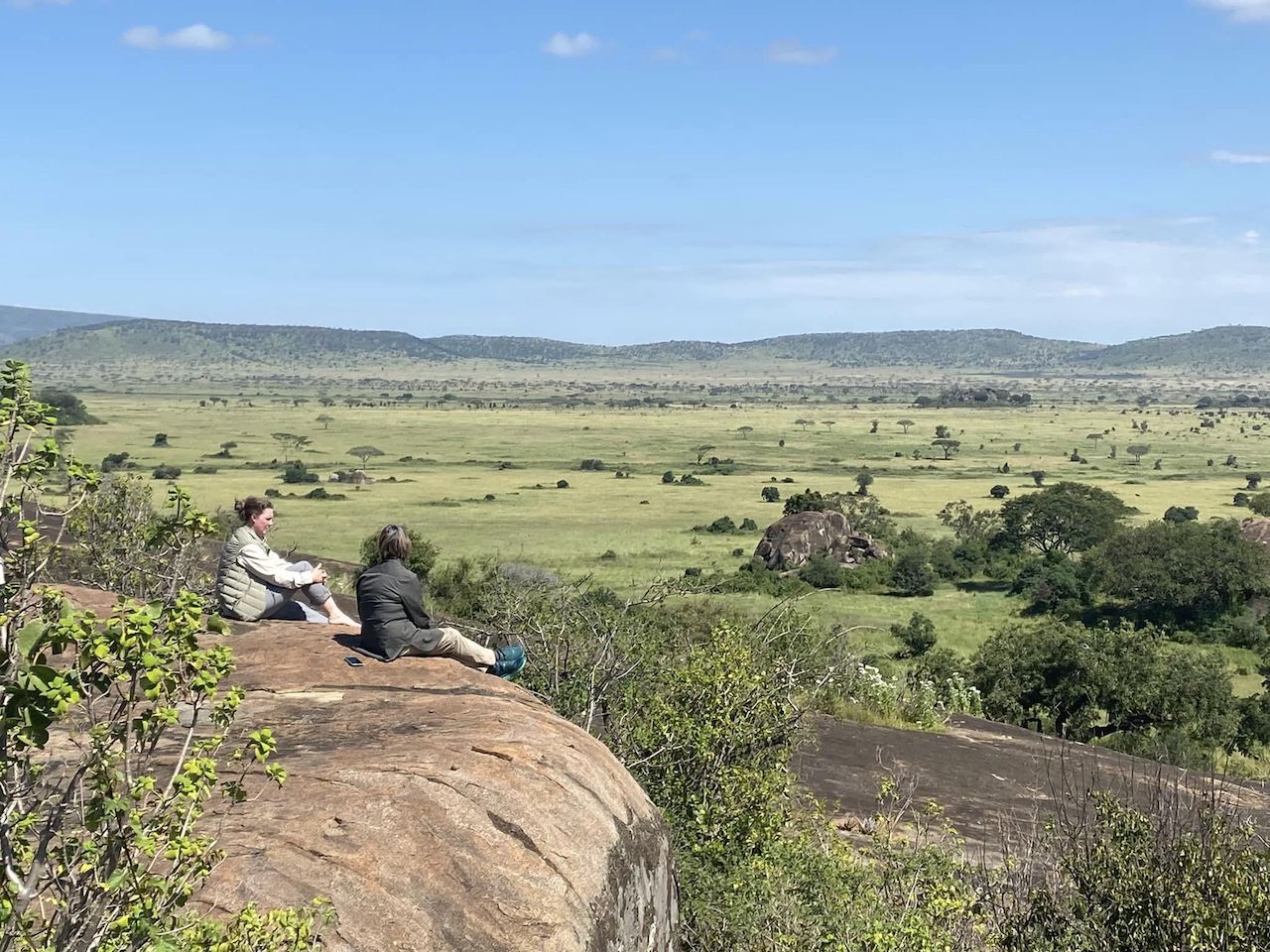
"I never expected the level of professionalism shown by guides and staff at camp. I was blown away by my animal encounters and truly didn’t know what to imagine and it certainly exceeded my expectations. I wish I could think of something to tell you that needs improvement as I understand the importance of quality improvement, however I can’t for the life of me think of anything. My experience was 100% amazing and I can’t thank you enough for contributing to this amazing first travel experience for me. It’s going to be hard to top this one."
Natalie Thorpe (first time in Africa)
great migration & river crossings
Late July, August and early September is usually a great time to experience the famous crossings of the thousands of wildebeests across the Mara River as the great migration makes its way up north out of Tanzania into Kenya and then circles back to the Serengeti again. This is peak tourist season in East Africa because the time when the wildebeests are crossing the river is very short, only a couple of months. Book well ahead if you are thinking of going during peak season to avoid disappointment. Our guests, Trevor and Vickie from Melbourne, experienced the migration in full swing this August and Vickie's words and photos tell the stories better than I can below.
"An amazing experience that completely exceeded our expectations. We have really missed that sense of serenity that one gets from being in the bush and away from everything material! All the staff were knowledgeable, helpful and friendly. Don't change a thing! We also like that Matson & Ridley Safaris are an ethical safari company."
Vickie - Melbourne, Australia
Thank you Vickie, Lee, Natalie and Pru for sharing your wonderful photos and words with us! The incredible photos below have been shared by Vickie Burt.
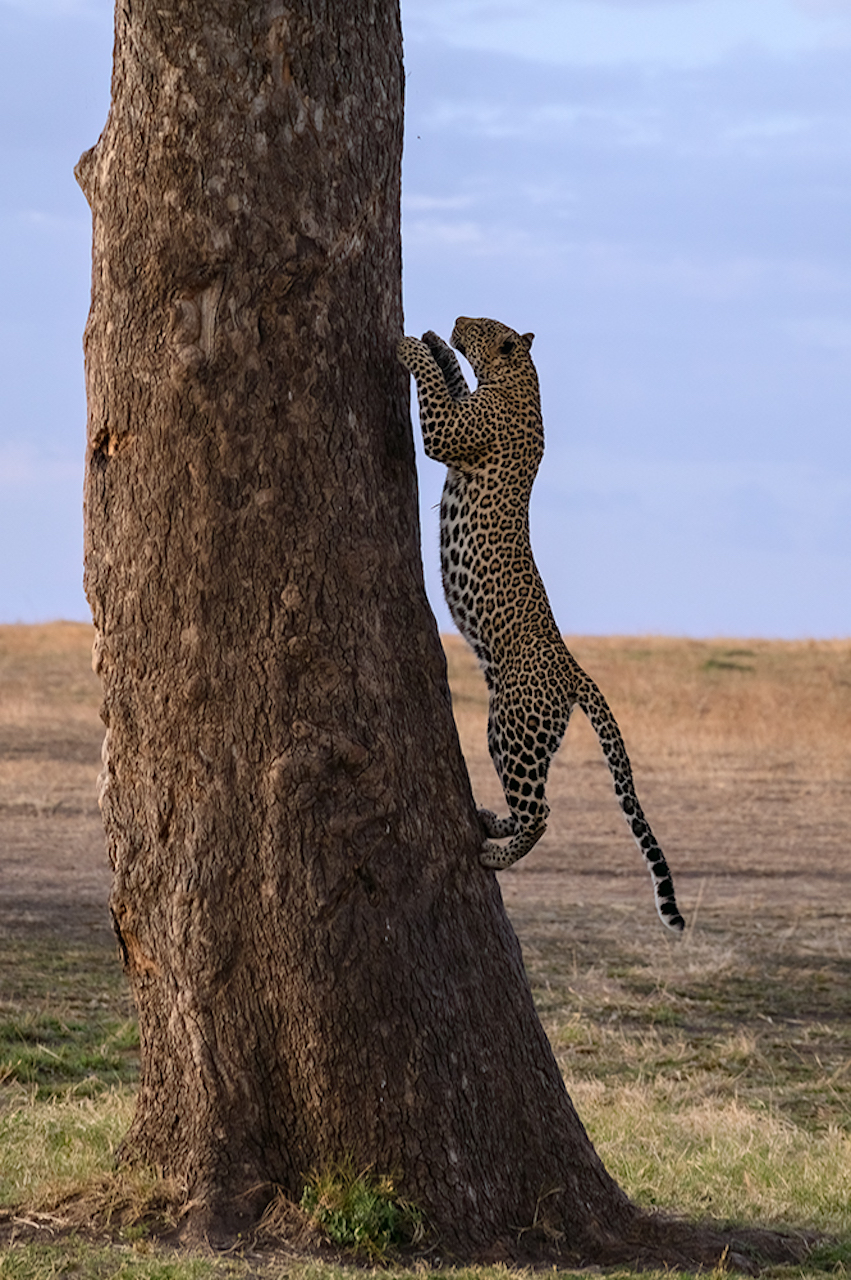
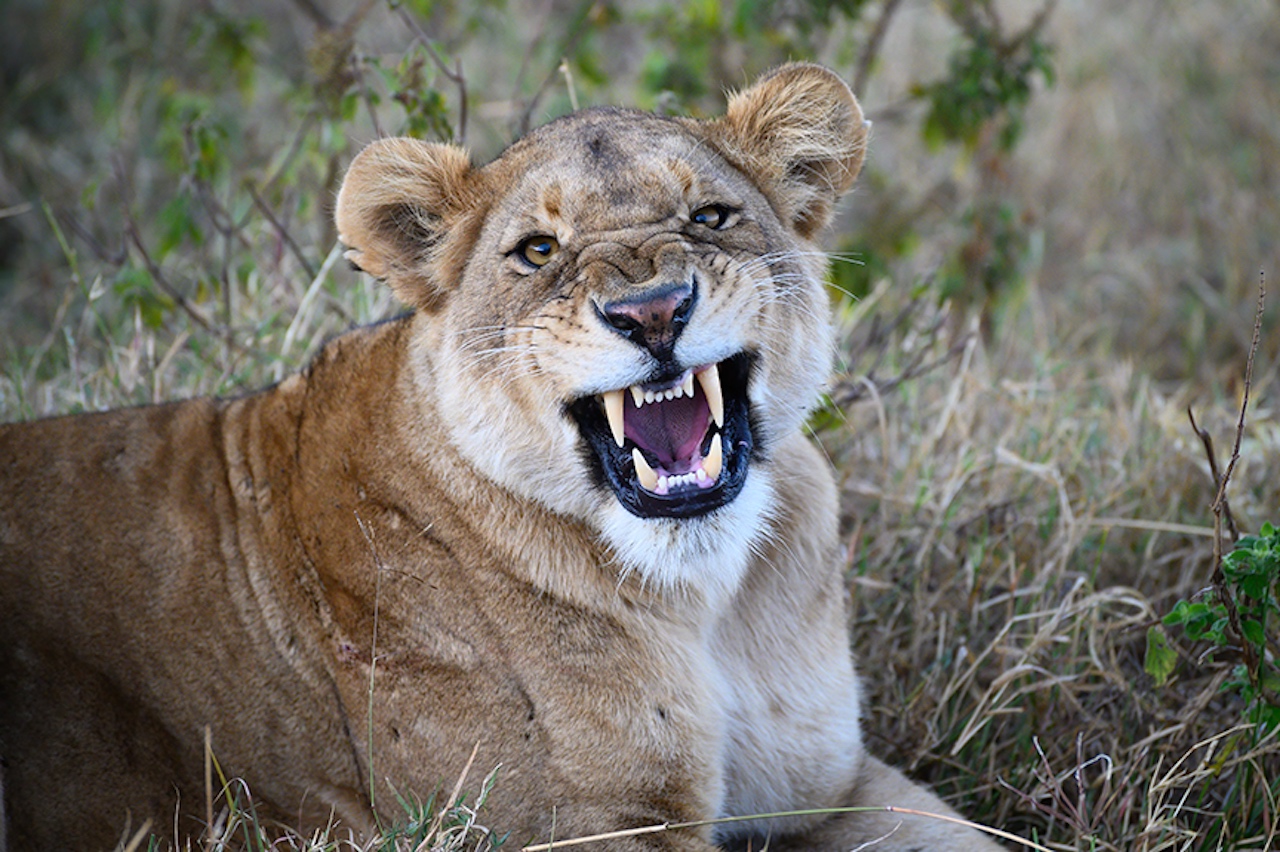
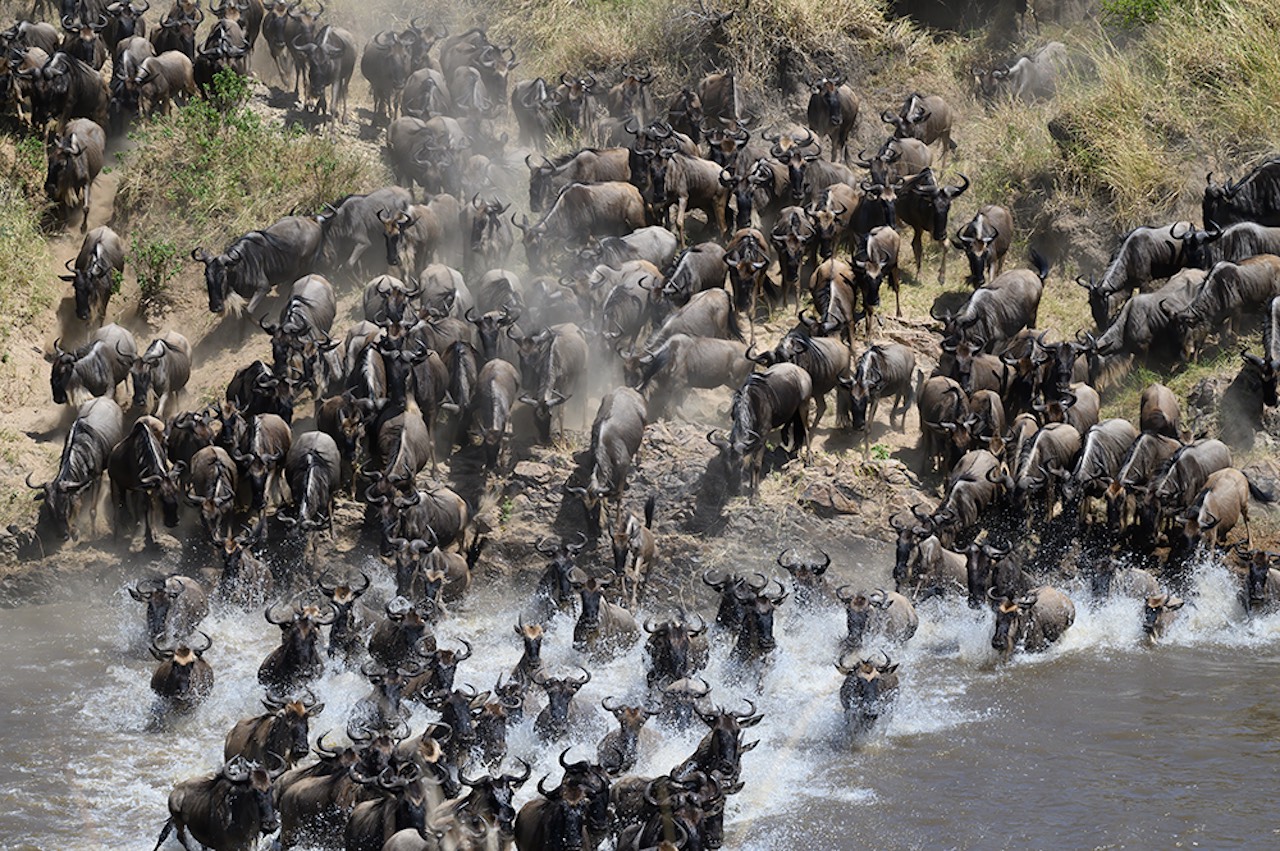
Returning to Botswana with my safari group this June was truly balm for the soul. It wasn't just that we'd waited so long (five long years since first arranging it, with a global pandemic in between), but that Botswana worked its magic so much that every hour there seemed to be one heart-exploding moment after another. Quite a few of my group, hailing from all around the world (Hong Kong, Singapore, Canada, Dubai/UK, Japan/China and Melbourne - a truly global entourage!), were on their first time to Africa. It's always special to host people who are experiencing Africa's wonder for the first time, but for me, after five years I even felt a bit new to Botswana all over again. It was pure heaven remembering how extraordinary this part of Africa is and why it's so famous as a safari destination. And thankfully I still knew the difference between a lilac breasted roller and a wood pecker. Phew!
The safari kicked off with a few days exploring the Makgadigadi Pans National Park where the dazzle of the zebra migration was in full swing. The elephant bulls in this area were constant visitors, even in our camp, Meno a Kwena, where elephants frequently fed on the trees near our rooms overlooking the river. The view of the Boteti River is one of the best in Botswana and our afternoon spent in the floating hide was pure magic as zebras and elephants filtered down to drink in a dust haze of stripes and wrinkled hide, while hippos on a sand bank basked oblivious to the mayhem in the winter sunshine.
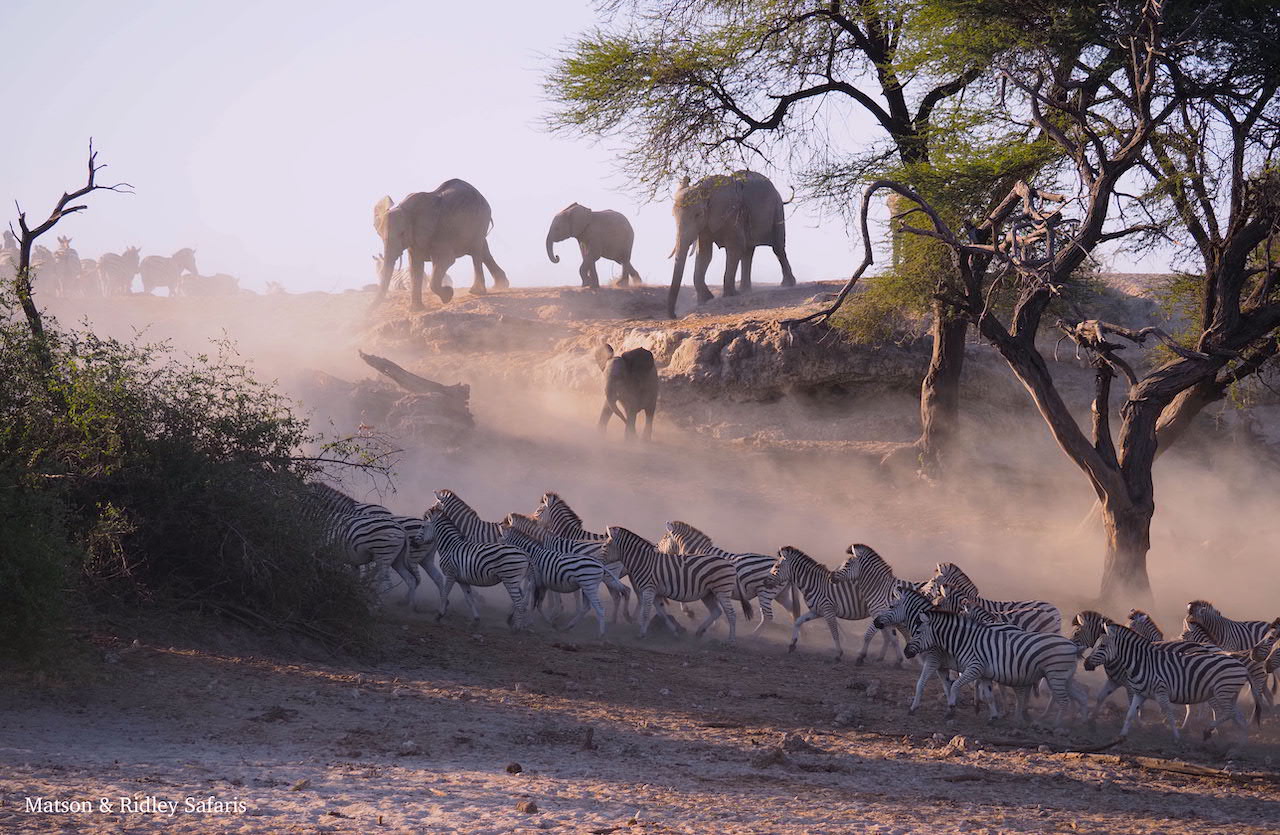
The San Bushmen experience at Meno a Kwena is something our guests always enjoy immensely and for many of this group it was a highlight of the trip. Taking a cultural walk with a family of Bushmen isn't something you get to do every day. The first people of Africa can teach us so much about living in harmony with the land and their sense of humour always has us in stitches. This time, one of the men showed us how to hold a scorpion and even how to put it in your mouth, something you should not try at home!
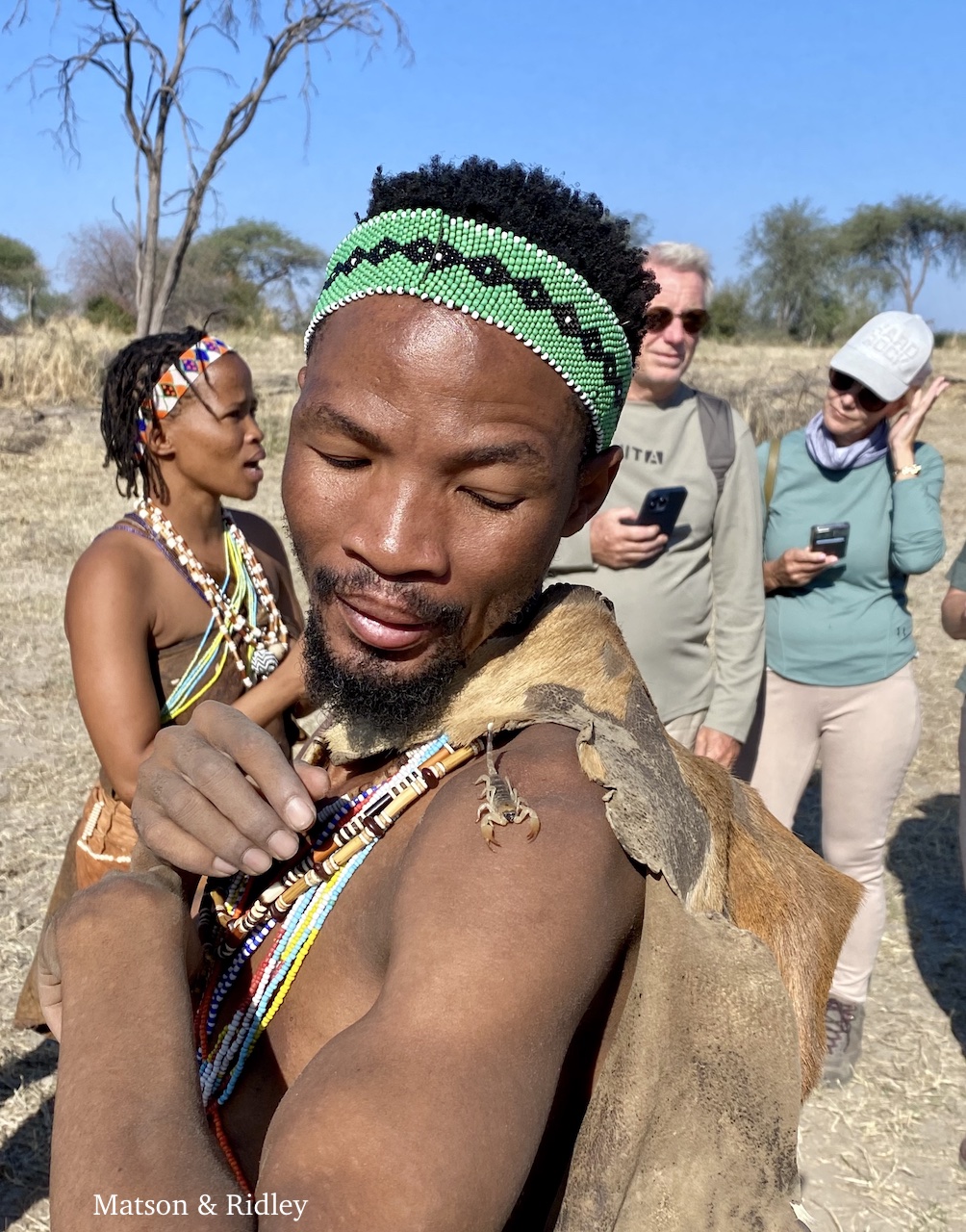
From there it was off to the luxurious new Dukes Camp in the Okavango Delta. After such a great few days at Meno a Kwena, we had no idea what a treat we were in for in this area. From multiple leopard sightings, including spending time with one drinking and protecting his warthog kill, to baby spotted hyenas at their den, a visit by a honey badger, and spending time with a pack of critically endangered African wild dogs, it was hard to imagine this getting much better. And then it did, with half of our group in one vehicle finding themselves watching the African wild dogs as they made a meal of an impala. Watching Africa's most efficient predators at work is one thing, but it didn't stop there. Moments later, spotted hyenas came along and then it was war, an all out brawl of hyenas and dogs! What a spectacular experience to witness and I know this is something my guests will never forget.
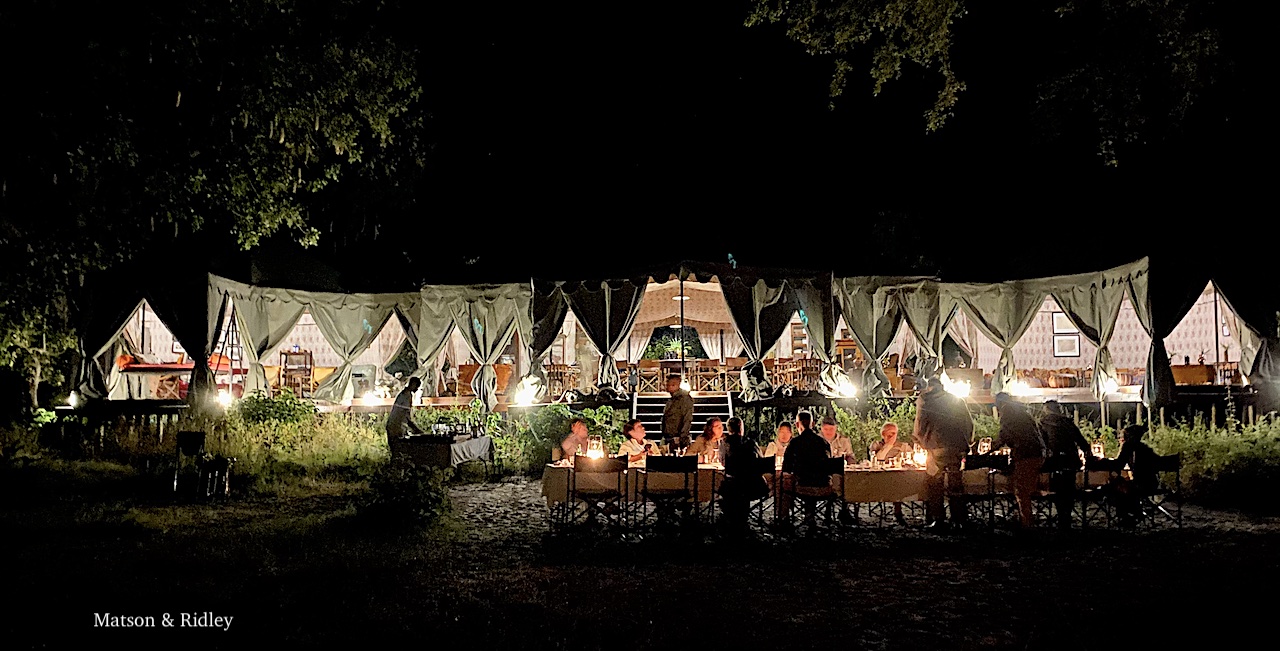
Next it was off to Little Sable Camp in the Khwai Private Reserve, an area that directly supports the local community through the partnership between Natural Selection and Khwai community. A huge elephant bull greeted us to make us welcome as we came into camp, giving everyone their chance for an elephant selfie as we crossed the bridge into camp. Early one morning in this area we witnessed three male lions crossing the wetlands (these big cats do swim in the Delta) on a chilly winter morning, more leopards (yes, by now my group were convinced there were more leopards than lions in Botswana!) and lions (mums with cubs, no less, and some big, scarred males!). On our last day in the early morning we spotted some hippos running across a plain in the reserve as we were driving to the air strip. After scanning the area with my binoculars we realised there were African wild dogs running as well, but it was a herd of lechwe they were chasing, not the hippos. Never a dull moment in the Okavango and when it comes to safaris, it's really not over til it's over!
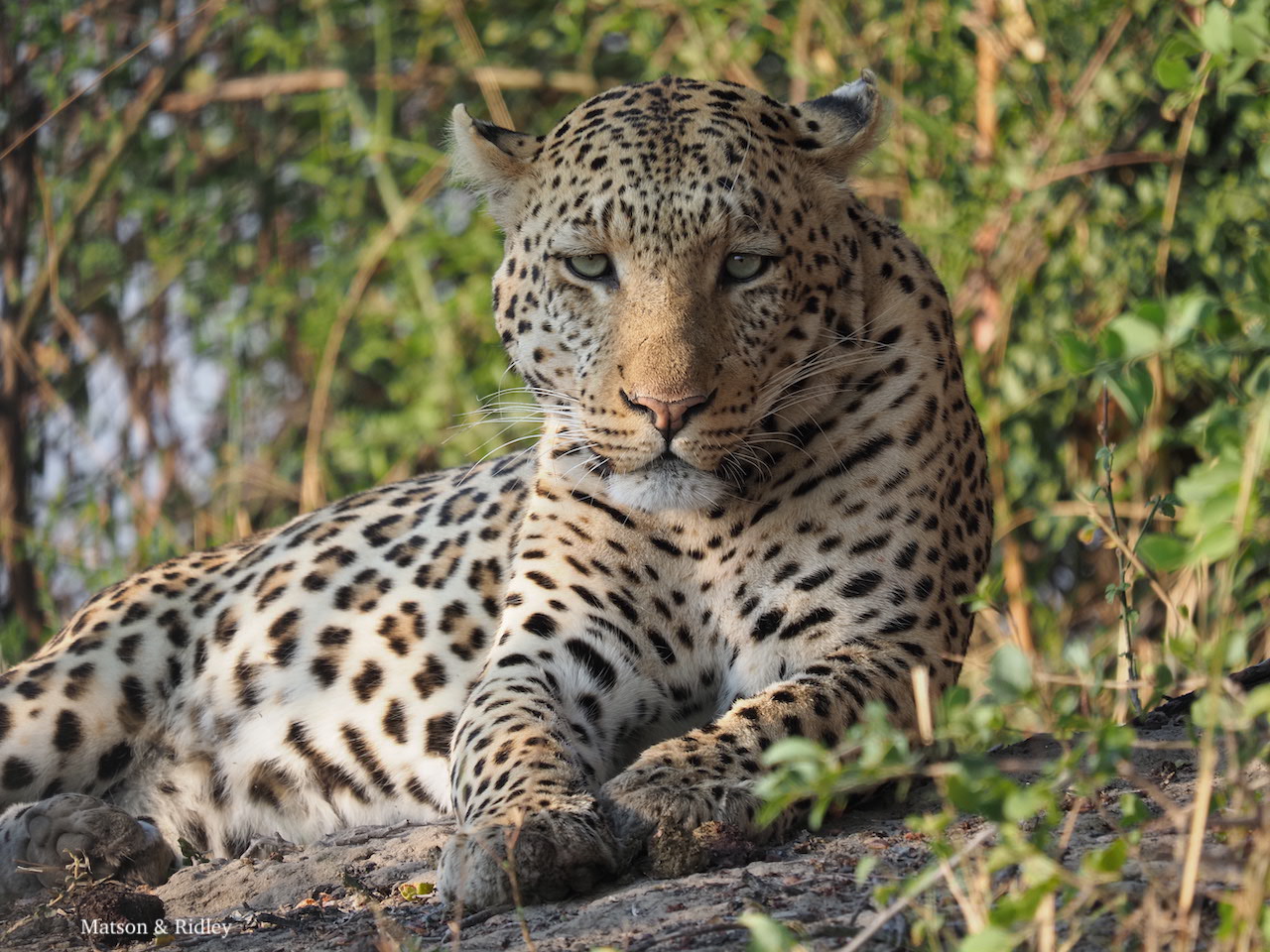
The whole group took some amazing photos home from this safari, but we were also fortunate to have an Australian professional photographer who is based in Hong Kong, Mark Ralston. Mark has let me share a few of his brilliant pics of the hyena and wild dog interactions below. They are something else!
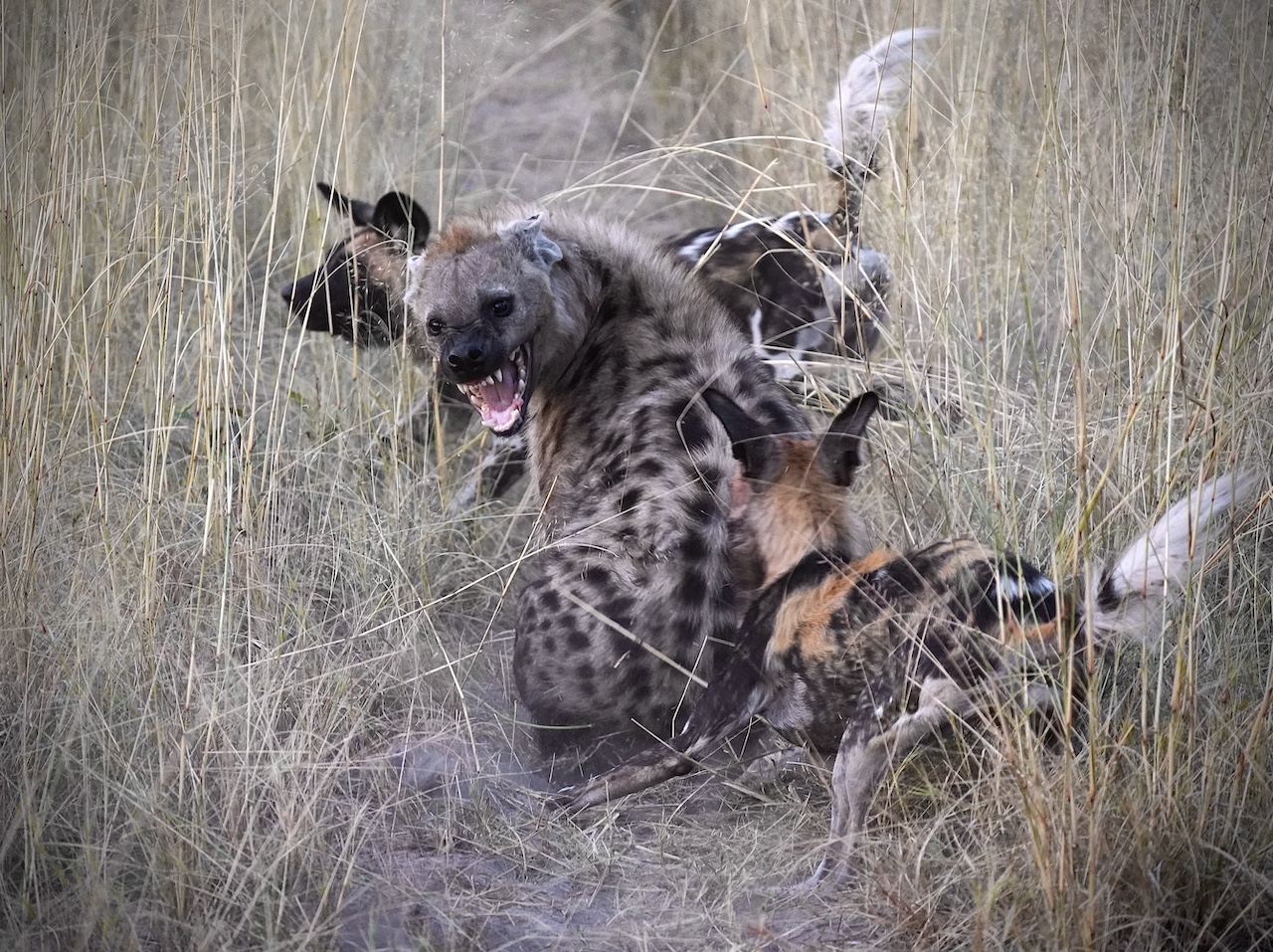
Photo: Mark Ralston
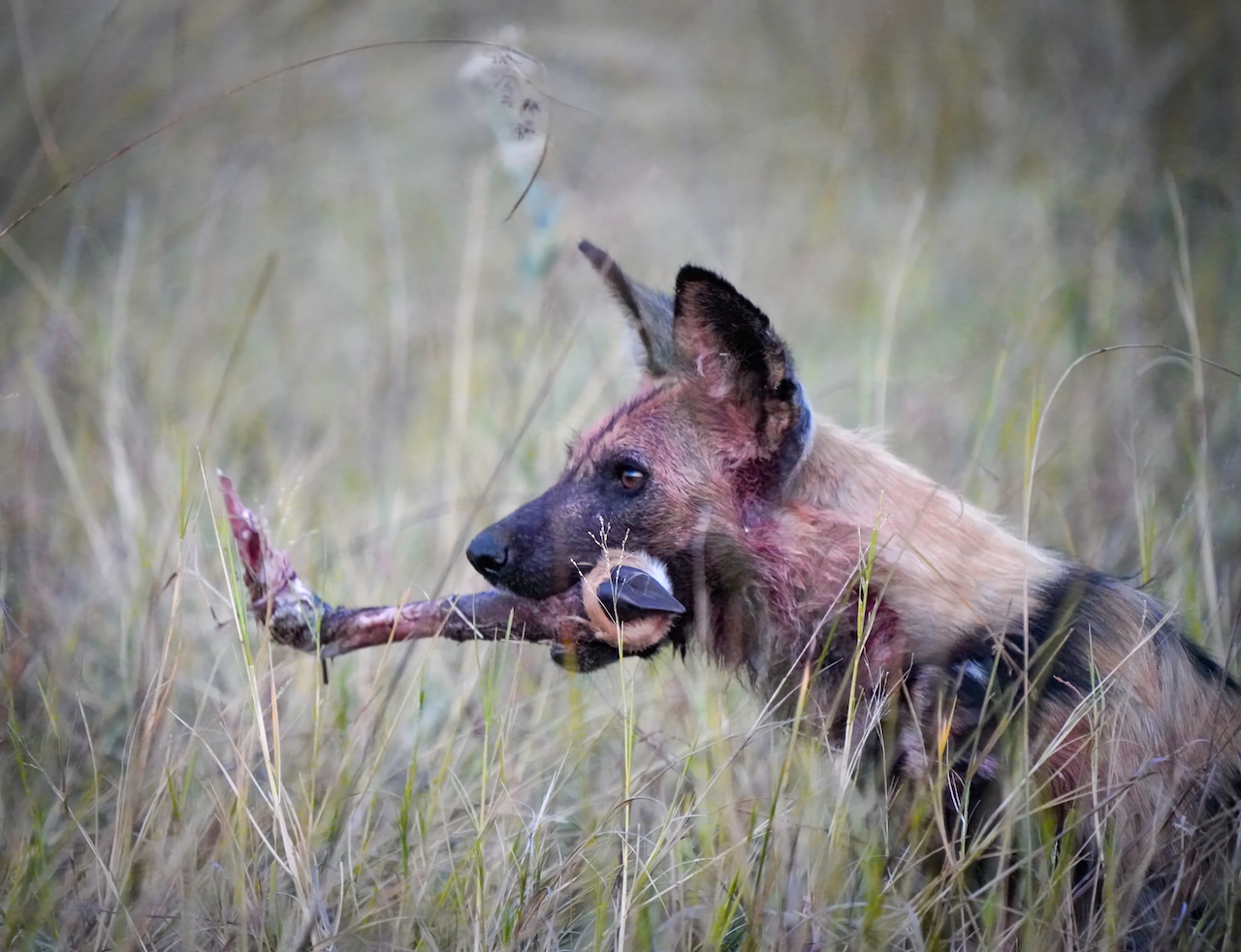
Photo: Mark Ralston
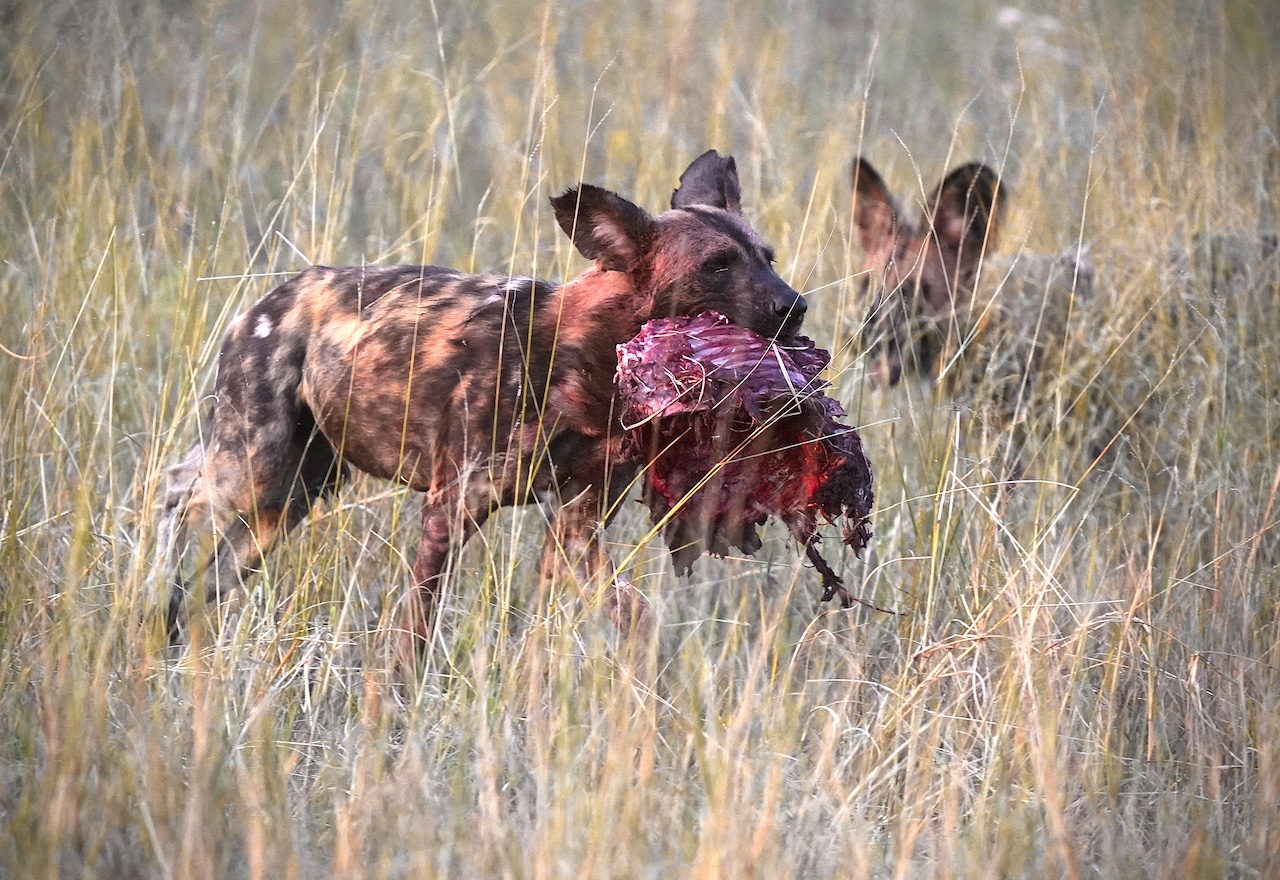
Photo: Mark Ralston
Our guests have been on some incredible safaris this year and in upcoming blogs I'll be sharing some of their memories from Tanzania, Rwanda and Namibia. Stay tuned for these updates in coming months and don't forget to follow us on facebook and instagram @matsonridleysafaris.
We are now taking bookings for my Botswana safari from 8-10 June 2024. This safari will be just as incredible as the one just past, so if you haven't experienced Botswana on one of my journeys please contact me here for the itinerary and secure one of only twelve places available. As with all the safaris we organise for our guests in Botswana, whether it's hosted by me or on an independent journey that I arrange for you, our partners at Natural Selection take the best care of you and ensure that 1.5% of every booking goes right back to conservation in addition to US$50/person/night towards their conservation and community levy. Our safaris are a cut above the rest. Just ask our guests! Contact me now to sign up.
"This has been an amazing trip for me…I would even say life changing, but I don’t know how or in what way…I just know that I have learned so much and unknown doors have been unlocked, but I won’t know which to open until they are presented to me…let’s see what the future holds and I look forward to what comes next…". Marlene Han, Singapore
"One thing we noticed during the trip was the number of animals. It felt to us there were far more animals( as in greater numbers of each species) than 12 years ago when we first travelled to Botswana and we feel this is evidence of the conservation approach that is being adopted by locals, tour companies and governments. It is such a fab thing to see." Kerry Guthrie, Australia
"Everything we saw and did surpassed all my expectations! Tammie was so knowledgeable and interesting. She did such a fantastic job of organizing and coordinating everything for us. I feel that I got the best Safari experience I could’ve had." Dianne Guy, Canada
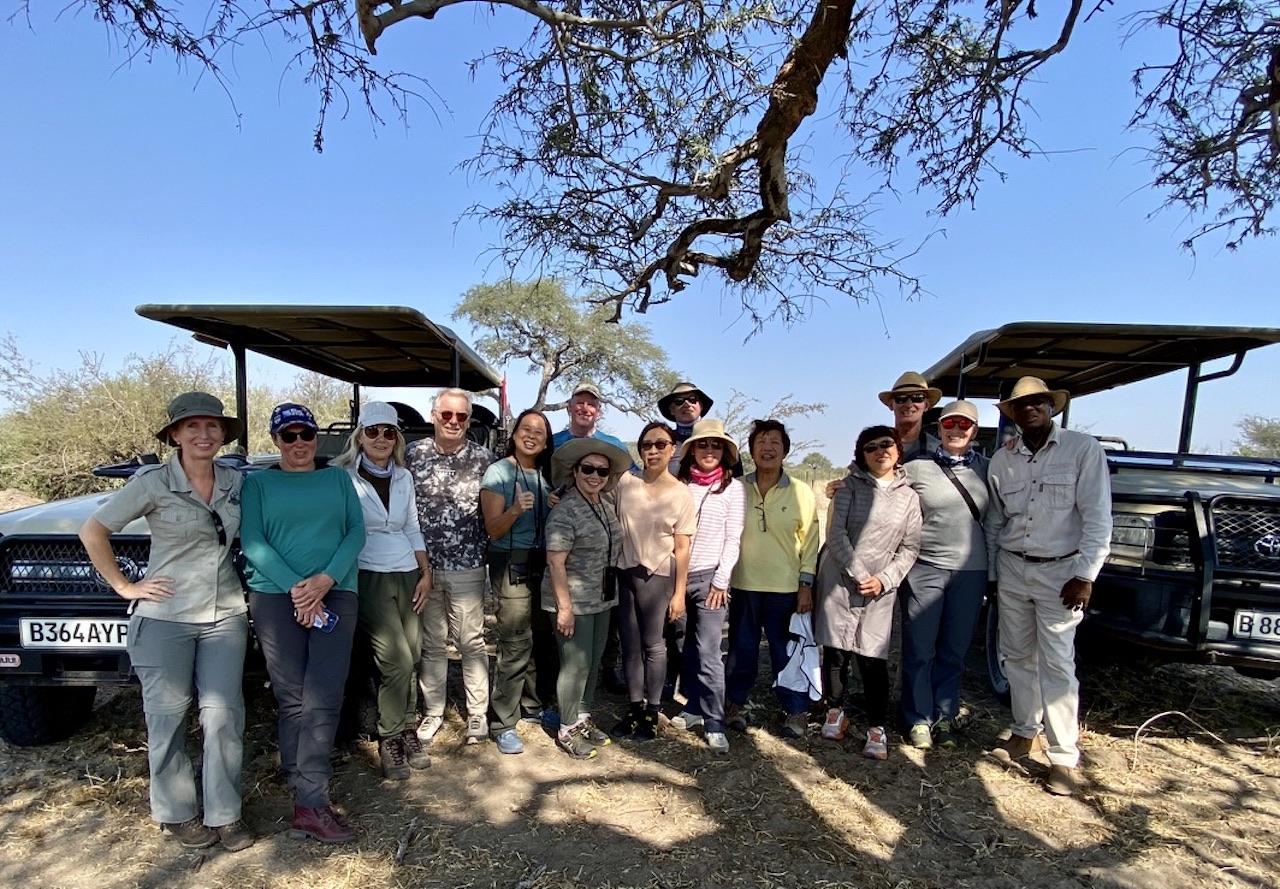
Tammie's Botswana safari group, June 2023 at Meno a Kwena with one of our guides, Mpaphi
Thank you to all of my safari group from Botswana this year and to all the fantastic guides, management and behind-the-scenes staff at Natural Selection for giving us the experience of a lifetime. Africa is so much more than a holiday and until you experience for yourself you won't know just how much it will enrich your soul.
Next year, Matson & Ridley Safaris celebrates ten years of being in business. Andy and I set up the company back in September 2014 when we lived in Singapore, took it with us to Amsterdam for a couple of years, and finally set it up in Australia when we returned to home soil in 2017. The company was always about how to use tourism to support conservation and local communities in Africa, creating a sustainable income that wasn't reliant on grants and donations. That hasn't changed. We still work closely with our partners like Natural Selection and Asilia Africa who we know genuinely contribute to conservation on the ground. We got through Covid by diversifying the business and building up our consultancy side, which now works on sustainable development projects in Cape York and Torres Strait in Northern Australia and southern Papua New Guinea. In 2023, it's fantastic to have so much interest from new and old guests in returning to Africa on safaris that make a difference, either by joining one of my small group safaris or by letting us arrange a bespoke journey just for you. We appreciate and value your support!
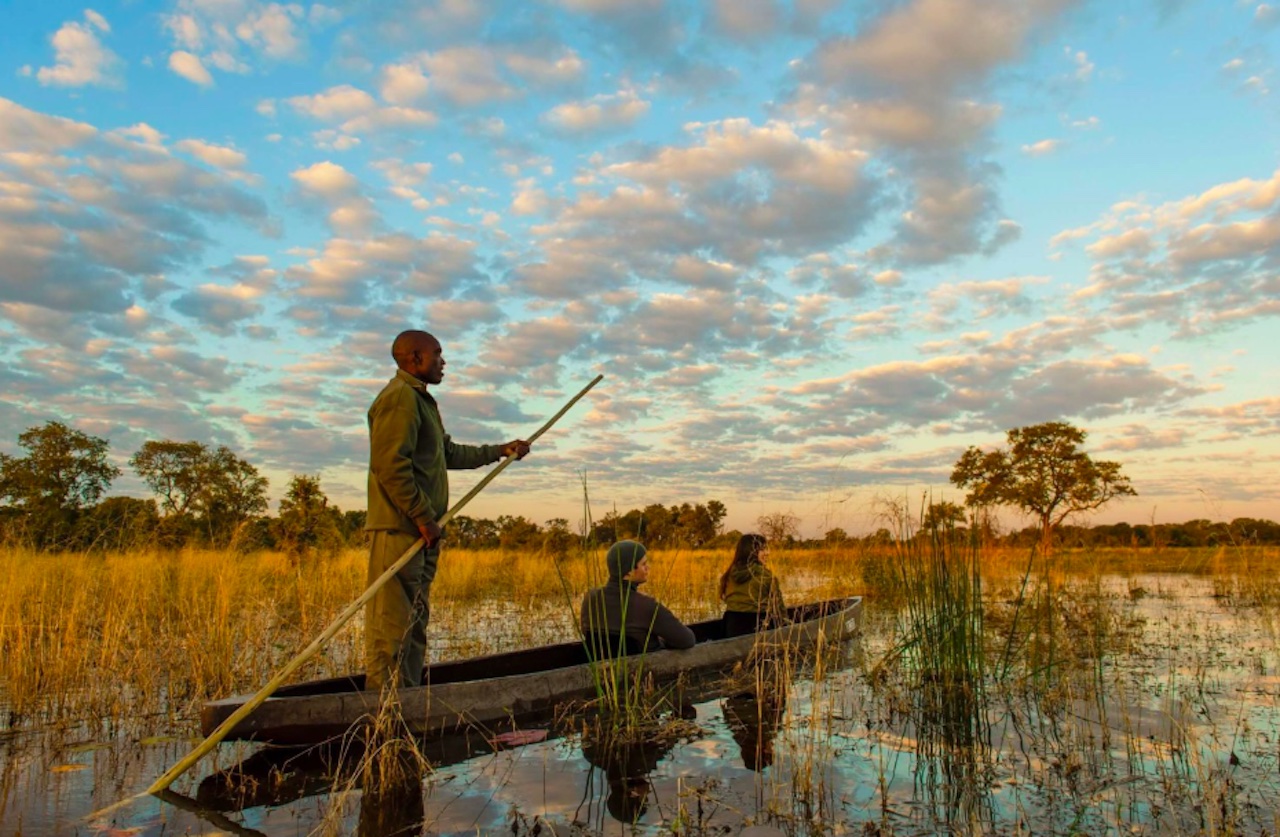
Above: Isn't it time you joined us on safari? Experiencing a mokoro is one of the highlights of the Okavango Delta, Botswana
Akagera Elephant Project, Rwanda
In 2018, we started the Akagera Elephant Project in Rwanda, looking for ways to provide useful conservation information through citizen science, both with the help our safari guests and the local guide co-operative. In December, thanks to donations from two of our guests in Singapore, I was able to provide training in elephant identification for five local guides and a park staff member. The project has identified about 80 elephants for the database so far, of which about half are complete IDs, but it's a work in progress and it relies on the local people on the ground to keep updating it with high quality photographs of the elephants' ears and tusks. It's not an easy task. First you have to find the elephants! Trust me, in the thick bush and swamps of Akagera that's not simple and even gigantic animals like elephants can be hard to spot. Then they have to be in the right position to photograph with the ears out and facing you head on so you can see the symmetry of the tusks. Rarely do all the elephants in a herd make themselves visible from sightings on the road, and the research is limited to roads as it's a national park so there's no off-road driving allowed. Only a few of the Akagera guides have good cameras with long lenses, which has made getting good photographs a challenge. But the most inspiring thing about the project has been seeing the enthusiasm of the local guides and our guests in learning more about the elephants. We've all been on the journey together and being able to produce six local trainers in elephant identification through the project, who are now sharing that knowledge with other guides, has been a great result.
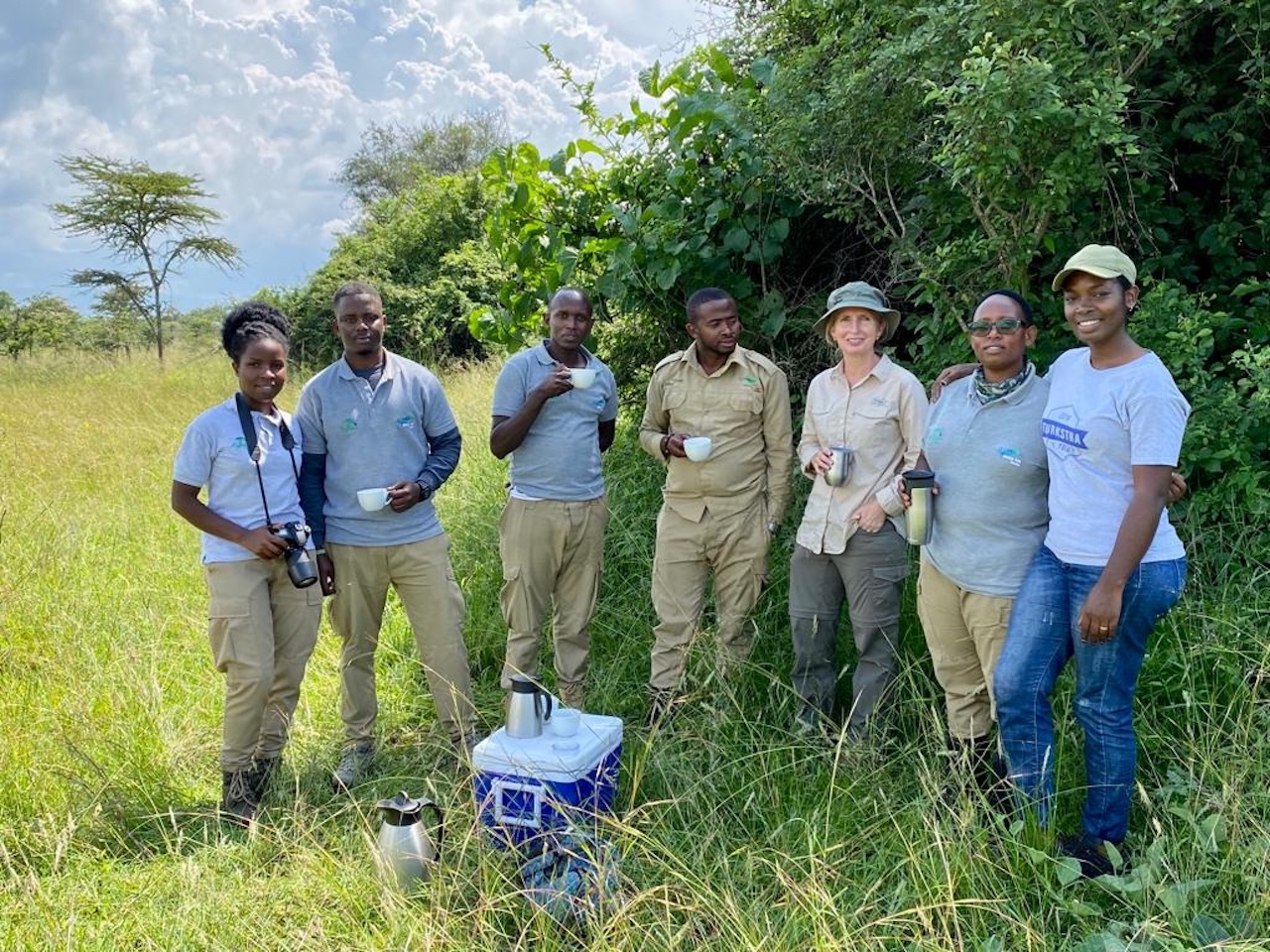
Above: Participants in the practical elephant ID training in northern Akagera, December 2022. (Left to right: Clementine Mugwaneza, Robert Muvunyi, Samuel Munyaneza, Cesar Benurugo, Tammie Matson, Peninah Kamagaju, Diane Umatoni)
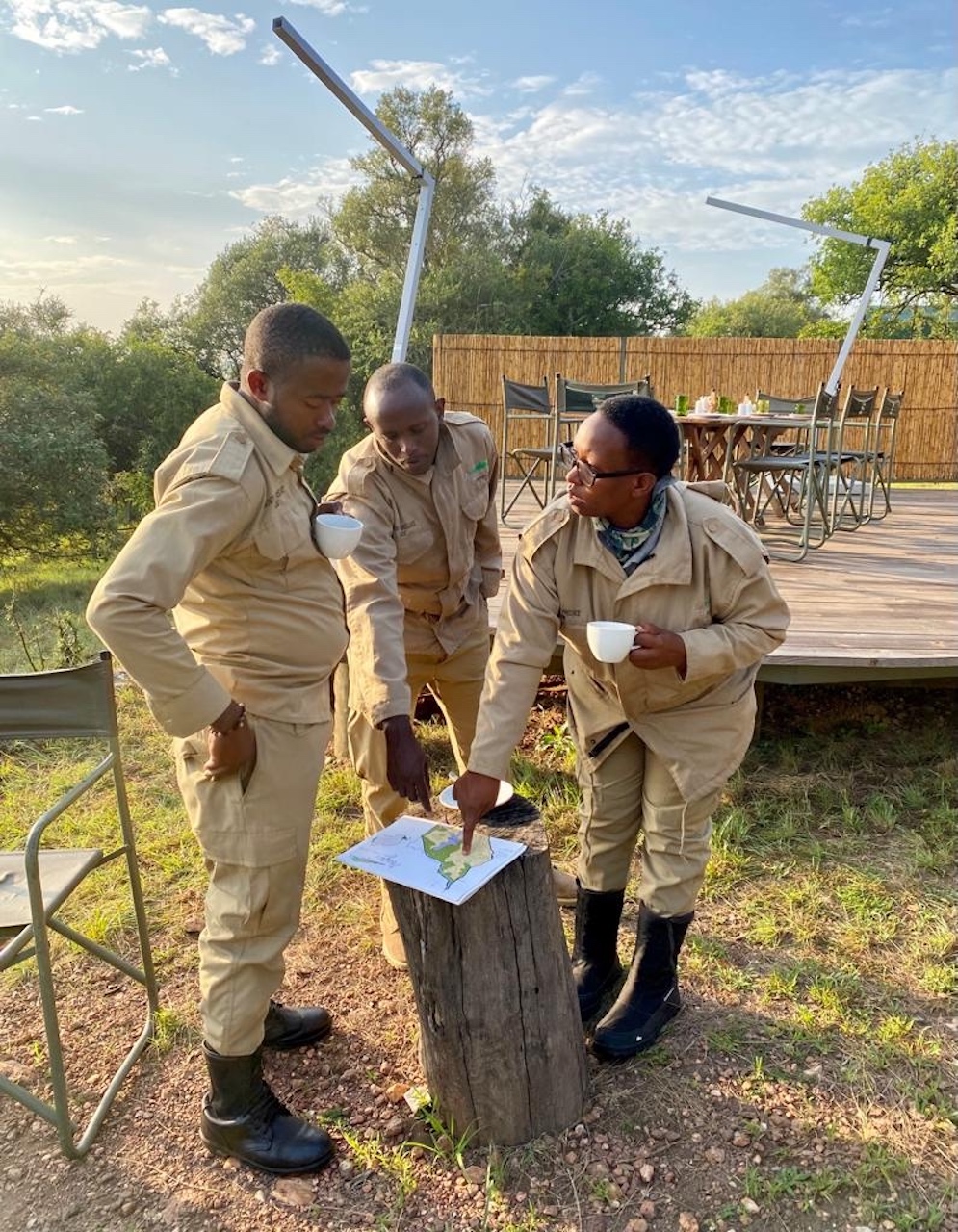
Above: Peninah, Sam and Cesar discuss where to find the elephants during guide training in December 2022
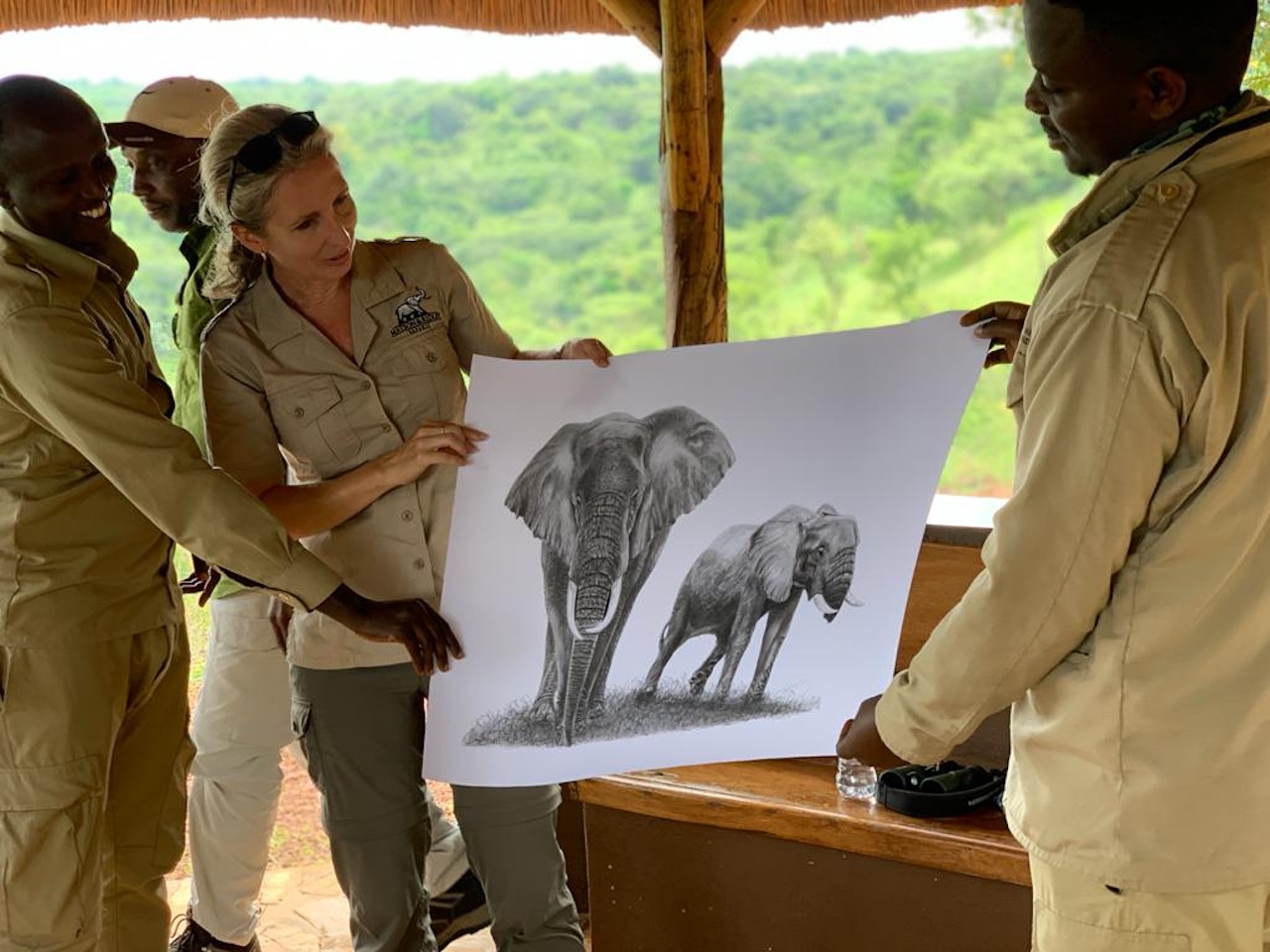
Above: I was honoured when presented with this beautiful hand drawn art work by a local Rwandan artist by the Akagera guides in December 2022
Upcoming Safaris
In just a couple of months I'm off to Botswana for a long-awaited safari with my group from Singapore, Hong Kong, Melbourne, Sydney, Japan, UK, Dubai and Canada! It's that time of year again when we announce our group safaris for the year ahead, so please read on if you are thinking of an African safari in 2024.
Next year I'll be running a group safari for up to twelve people in Botswana from 14th June. We are taking bookings for this journey now, and it already has several places taken, so please don't wait to book your spot. The journey includes the option of either seven or nine nights on safari in one of Africa's most exclusive, diverse and fascinating wildlife areas. The main seven night journey focuses on the stunning Khwai Private Reserve, including three quite different safari camps in quite varied habitats.
Our first camp, Hyena Pan, is set in the mopane woodlands overlooking a lagoon that the elephants simply love. You barely need to leave your room to experience the wildlife in this camp as the lagoon is the only water around for miles, providing a major attraction for the animals. Then it's off to Little Sable Camp, a truly authentic Okavango experience where we will be able to drive, boat and mokoro our way to see the wildlife. The traditional dug out canoe experience at Little Sable ('mokoro') is a highlight of this area. While in this area we'll spend a night at the iconic Skybeds. This is an experience no other. Spend a night under the stars in one of only three luxurious towers designed to give you the most amazing views of a waterhole frequented by all sorts of animals, from African wild dogs to elephants.
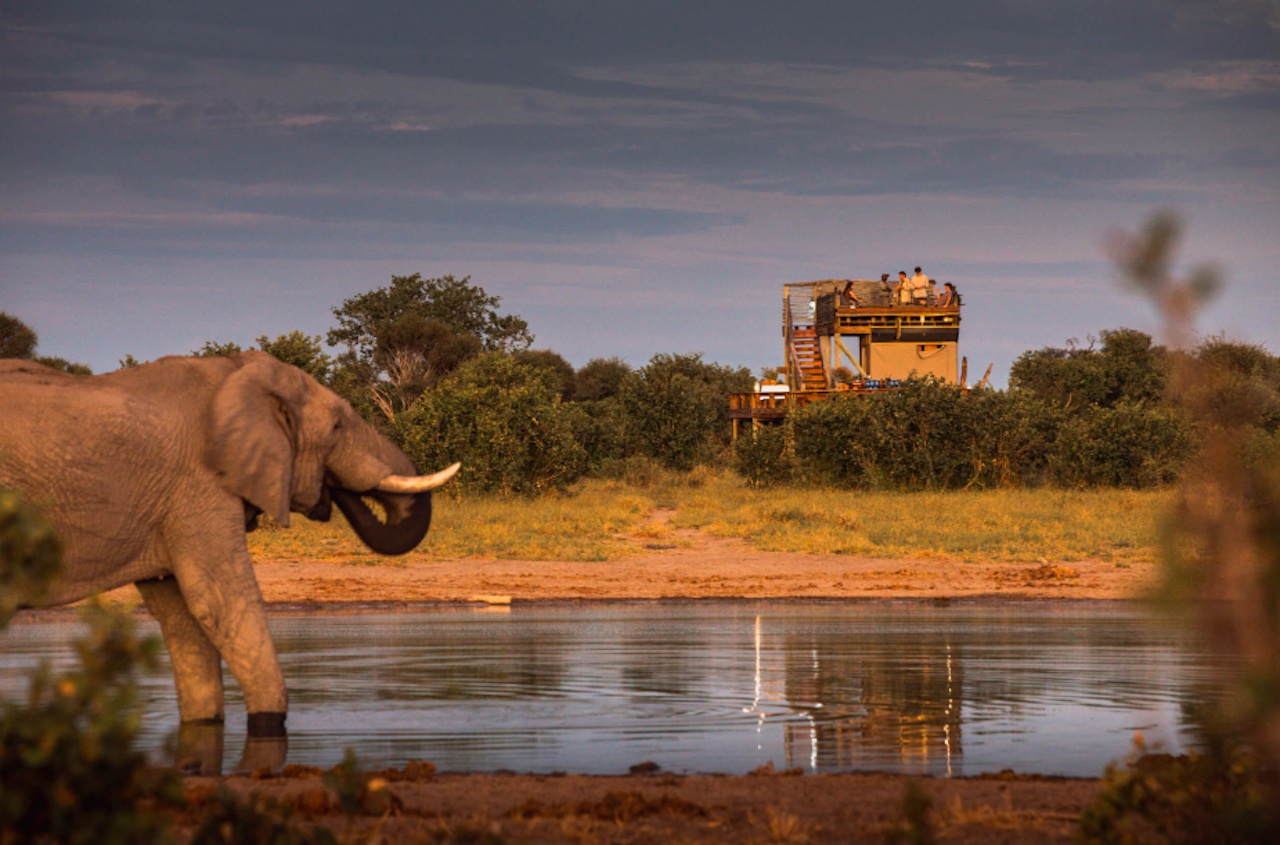
Botswana is famous for its elephants, having the largest population in all of Africa, but Khwai Private Reserve is also known for its African wild dogs, lions, hyenas, leopards, sable antelope and so much more. We will be in Botswana at the time of the great zebra migration, so if you would like to extend your safari by two nights, we are offering a two night stay at Meno a Kwena Camp to be included to experience a dazzling display of zebras, more than you can imagine. Contact me for the itinerary and let's make your dream safari happen!
This safari contributes 1.5% plus US$50/night/guest to the conservation and community projects undertaken by the Natural Selection Foundation, which includes work on community conservation education, African wild dog, giraffe and leopard research and anti-poaching efforts, just to mention a few. Find out more about Natural Selection's projects and see how your safari makes a difference on the ground. They support over 94 initiatives in Botswana, Namibia, Madagascar and South Africa.
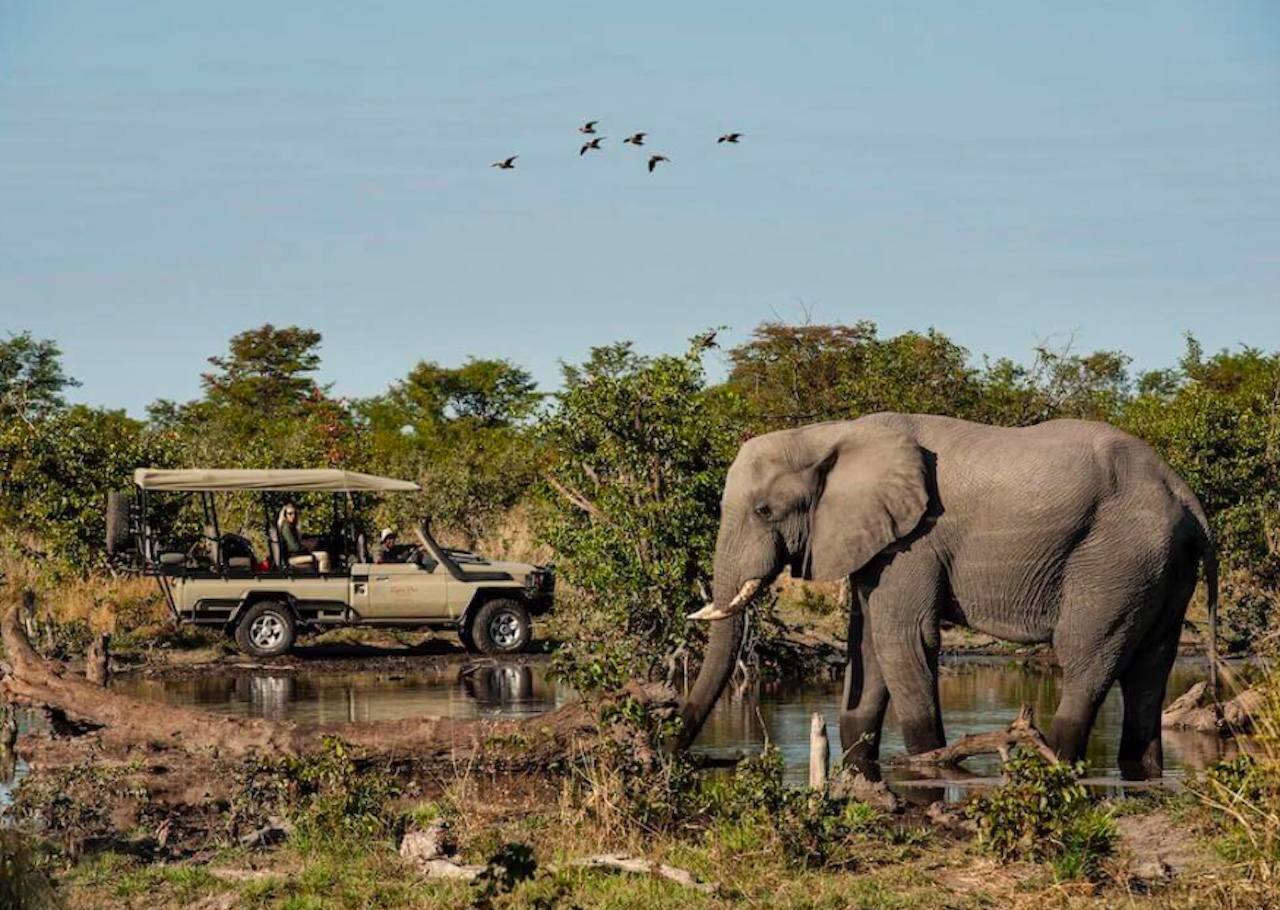
Contact us now to book a bespoke safari on dates that suit you or to join one of my small group journeys in 2024. The right kind of safari can provide significant benefits to ensure local people benefit from the conservation of Africa's wildlife, and that's what it's all about. After all, we all want to live in a world with elephants and lions in the future. By going on a conservation-focused safari you'll ensure that your hard-earned dollars are contributing to the kind of future we all want to see for Africa.
Rwanda
Returning to Africa after three years of being away was like having a really good hug with an old friend. I can't tell you how much I missed the rich, earthy aromas, the warm-hearted people and the daily delights of looking for wildlife in an open vehicle. There's really nothing like going on safari in Africa. I am spoilt by having the best groups ever, of course, and this was the case in Rwanda in December. I am always amazed how complete strangers bond on my safaris and I'm sure it's got to do with having the desire to connect to nature in common, even when people come from different countries and have totally contrasting lives back home. There is something about an African safari that brings everyone together on the same level around a campfire. It's no beach holiday; this is a grand adventure, and you will grow from the journey and trust me, you'll never forget it.
A few highlights from Rwanda were seeing two leopards in Akagera National Park in one day, finding all of Clan B (the largest herd of elephants in the park) as we arrived at Magashi Camp and being able to enjoy their company by boat as they bathed and played in the water, sharing our gorilla sighting on one day with several forest elephants (which got our heart beating a bit faster!), seeing the new Ellen DeGeneres campus of the Dian Fossey Fund at Musanze and learning more about the plight of gorillas and efforts to conserve them, and seeing a large male baboon chase a spotted hyena off after the hyena tried to prey on a young baboon! So many highlights - and I forgot to mention the plethora of birds for which Rwanda is famous. The Veroux eagle owl on a fresh francolin kill was another highlight, thanks to the 'eagle eyes' of our guide, Herman van Kusi, and seeing a Ross's turaco for the first time too. I've tried to summarise it all in my photo montage below.
I had the pleasure of four days in the company of five local safari guides and a park staff member prior to the safari in order to run a training course in elephant identification techniques as part of the Akagera Elephant Project. I want to acknowledge the two generous sponsors from Singapore who funded this training, who are also safari guests of ours. More on this and the latest results from the Akagera Elephant Project in my next blog.
Botswana
My next safari is in Botswana and you can still sign up if you'd like to experience 7 nights in the Okavango Delta and surrounds, the home of Africa's largest elephant population and one of the wildest parts of Africa. My Botswana Highlights safari has only got space for a maximum of 8 people, less than my usual group size of 12, so if you're looking for a really intimate safari in an extraordinary wildlife area, this safari is for you. This part of Botswana is well known for its rare African wild dogs and we can expect some excellent predator sightings as the area is home to leopards, lions and spotted hyenas, just to name a few. The highlight may be your night at The Skybeds, a tower under a star-studded sky overlooking your own private waterhole... or it might be your night at the luxurious Dukes Camp, an upgrade for this group only, located on a tributary of the Okavango Delta, where we are able to explore the World Heritage wetlands by boat and mokoro (dugout canoe). Seriously it doesn't get much better than this! Contact me now if you would like to join me from 17-24 June this year. I have two rooms left on this exclusive safari that gives so much back to conservation and local communities through the Natural Selection Foundation.
Namibia
Namibia remains one of the best safari destinations for those looking for a self-drive adventure or something more luxurious among the desert dunes, and our guests, the Larkin family from Western Australia, recently discovered this for themselves on a self-drive family safari with their two kids. I've done this type of safari myself with my husband and two kids, then aged four and eight, and the kids still rave about it as one of their best safaris ever. Namibia's sand dunes are un-beatable for unmitigated FUN for kids when they're not learning the tracks of the animals, and for the parents the desert sights, from the might oryxes on the dunes at sunsets to the flamingoes on the coast and the lions and white-dusted elephants in Etosha are unforgettable. This is a country where you can self-drive or do a guided fly or drive safaris, so there are lots of options.
In Sally Larkin's words:
"Our trip was amazing thank you very much. Such variety in scenery, and great animal sightings. Our favourite stays were Safarihoek (Etosha), Okonjima (Etosha), Wolwedans (Namib Rand) and Etendeka (Damaraland). The guides were all very good... not sure if that was because we stayed at brilliant places or because they kept the best of the best for us due to COVID. We found the country very clean, very safe, easy and familiar as regional Australia."
The photos below were taken by Sally Larkin on their family safari in Namibia. The smiles say it all! Thanks for sharing your photos Sally.
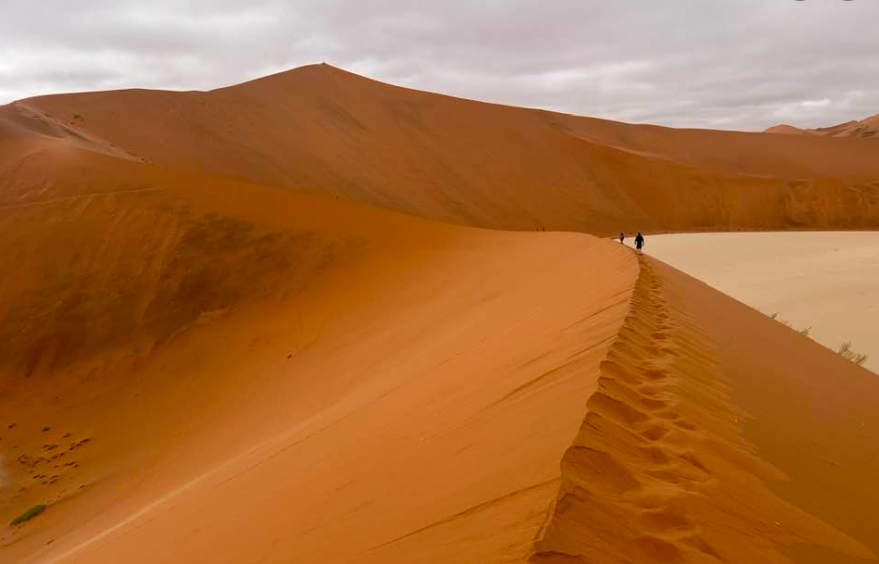
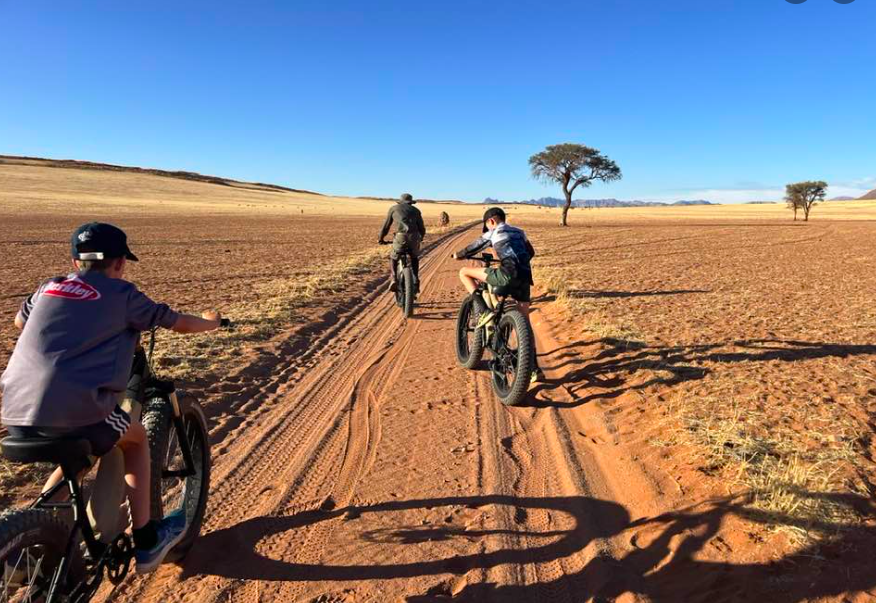
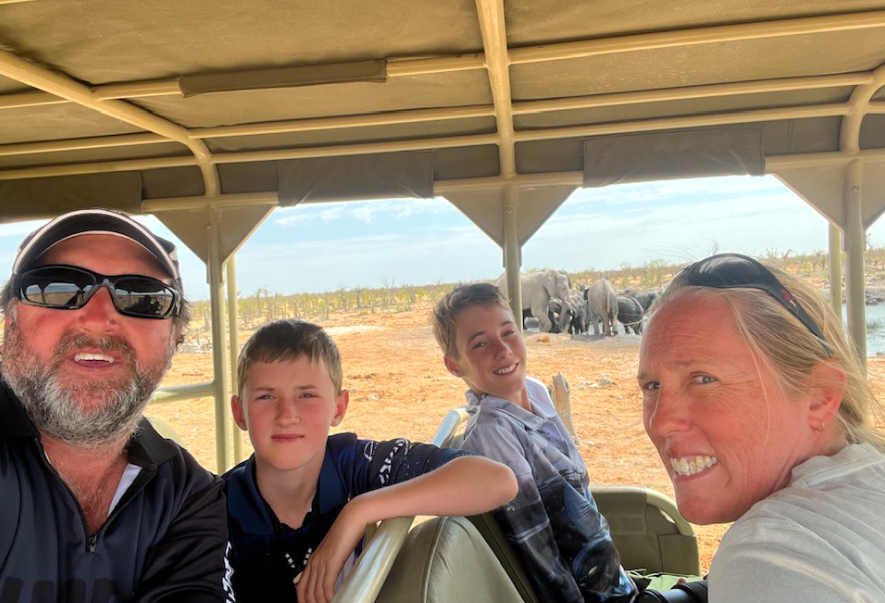
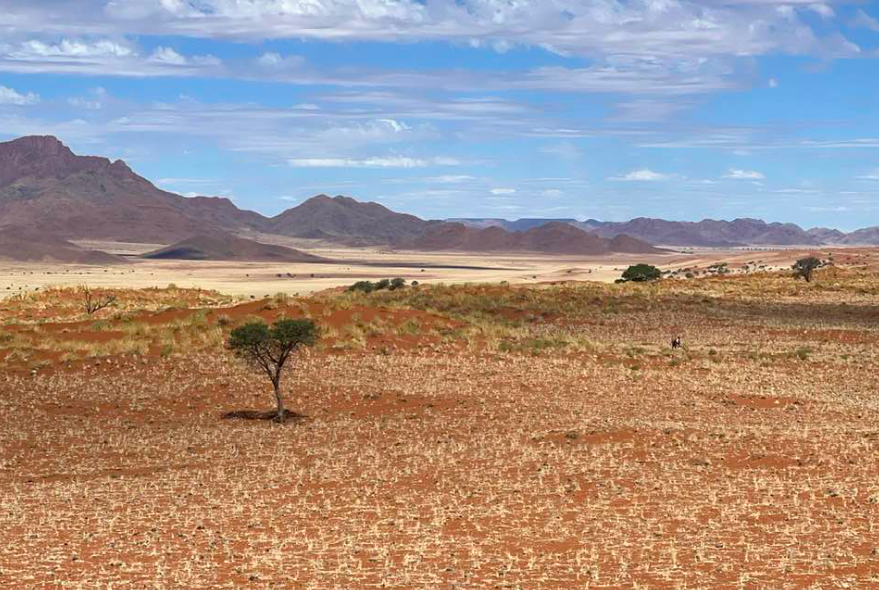
If you are thinking about a safari this year or in 2024, please drop us a line and register your interest so we can keep you in the loop. If you get in now, you can have a say in where my group safaris will focus in 2024, and I'd love to hear from you. We are so excited to be back in business and to be sharing Africa with our guests again. Drop us a line and let us make your dream safari a reality!
Our Guests on Safari
After so long without being able to get on a plane overseas, it seems like many of us are taking to the air with a vengeance and making up for lost time. If our recent guests, the Lilley and Kozil family's safaris in Botswana, are anything to go by, it's well worth overcoming your doubts and getting out there. Africa is waiting for you and it's even better for the wait! Read below what our guests visiting Botswana in the last couple of months had to say after they got home. We love feedback like this! For USA-based Andrea, who had been to Africa before, it was her desire to share the experience with her daughter that led to this beautiful mother-daughter safari in Botswana. For the Lilley family, Christopher and Margot wanted to share the magic of Africa with their kids. Botswana never fails to disappoint when it comes to family holidays and the smiles really say it all in these photos.
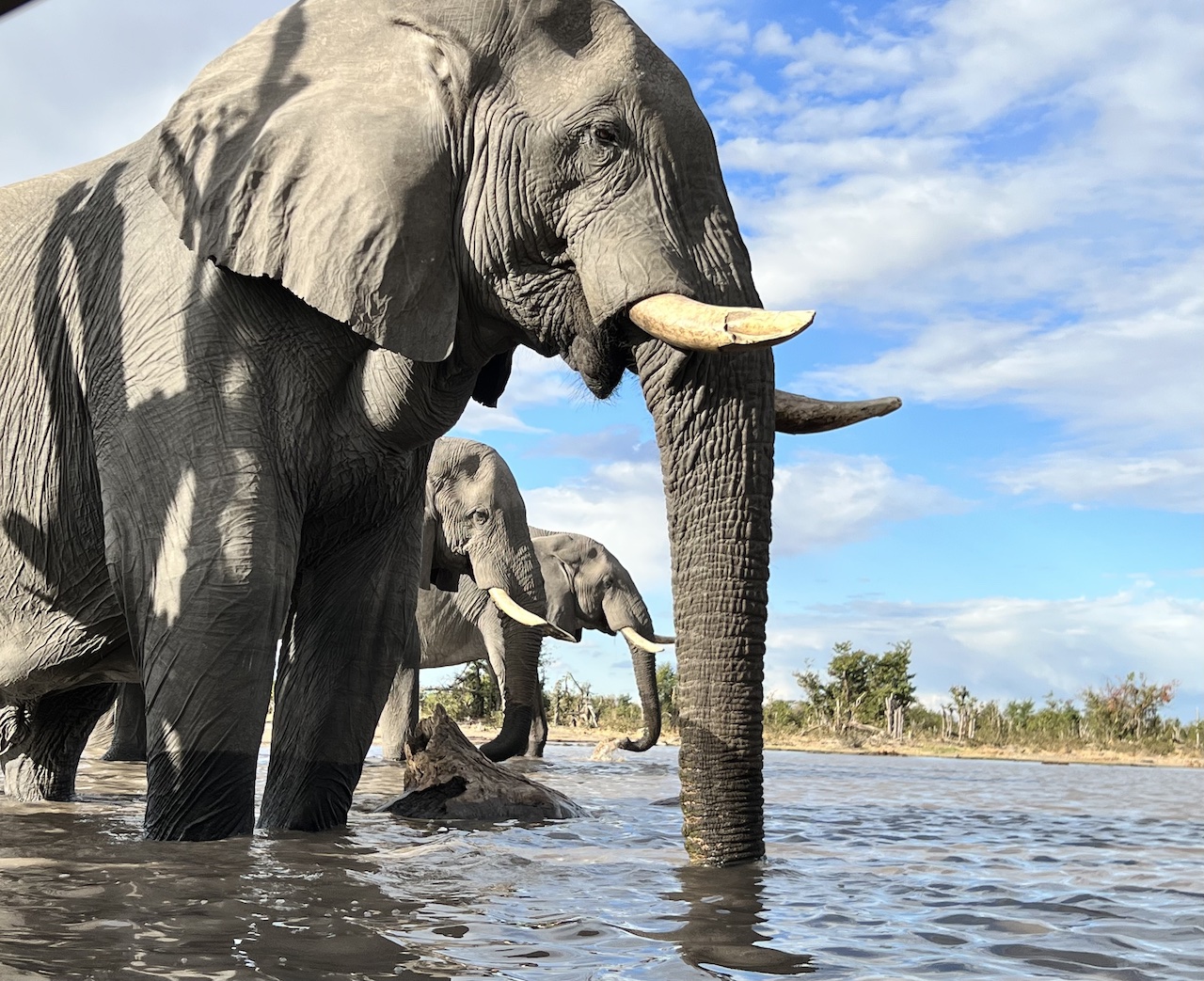
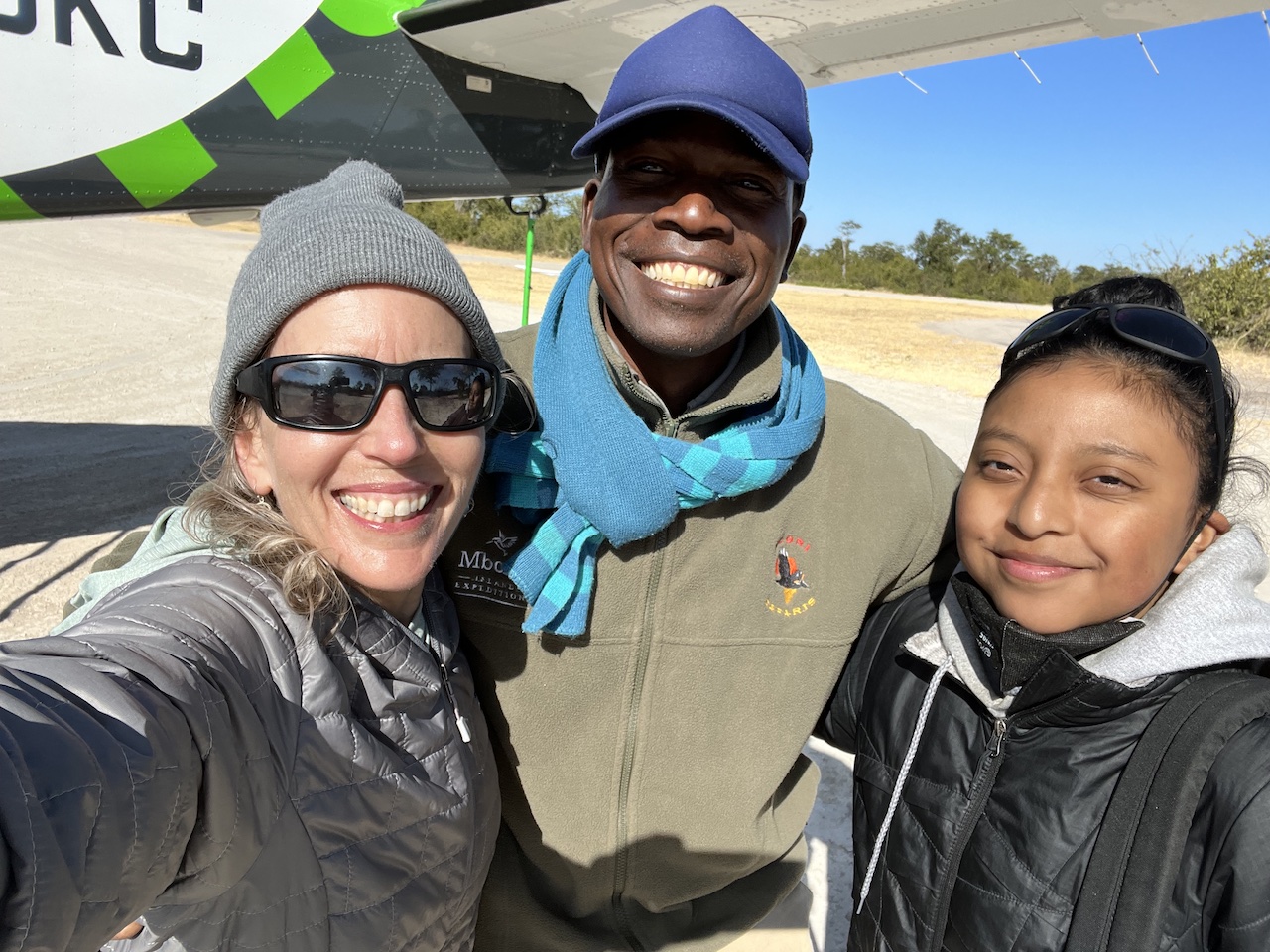
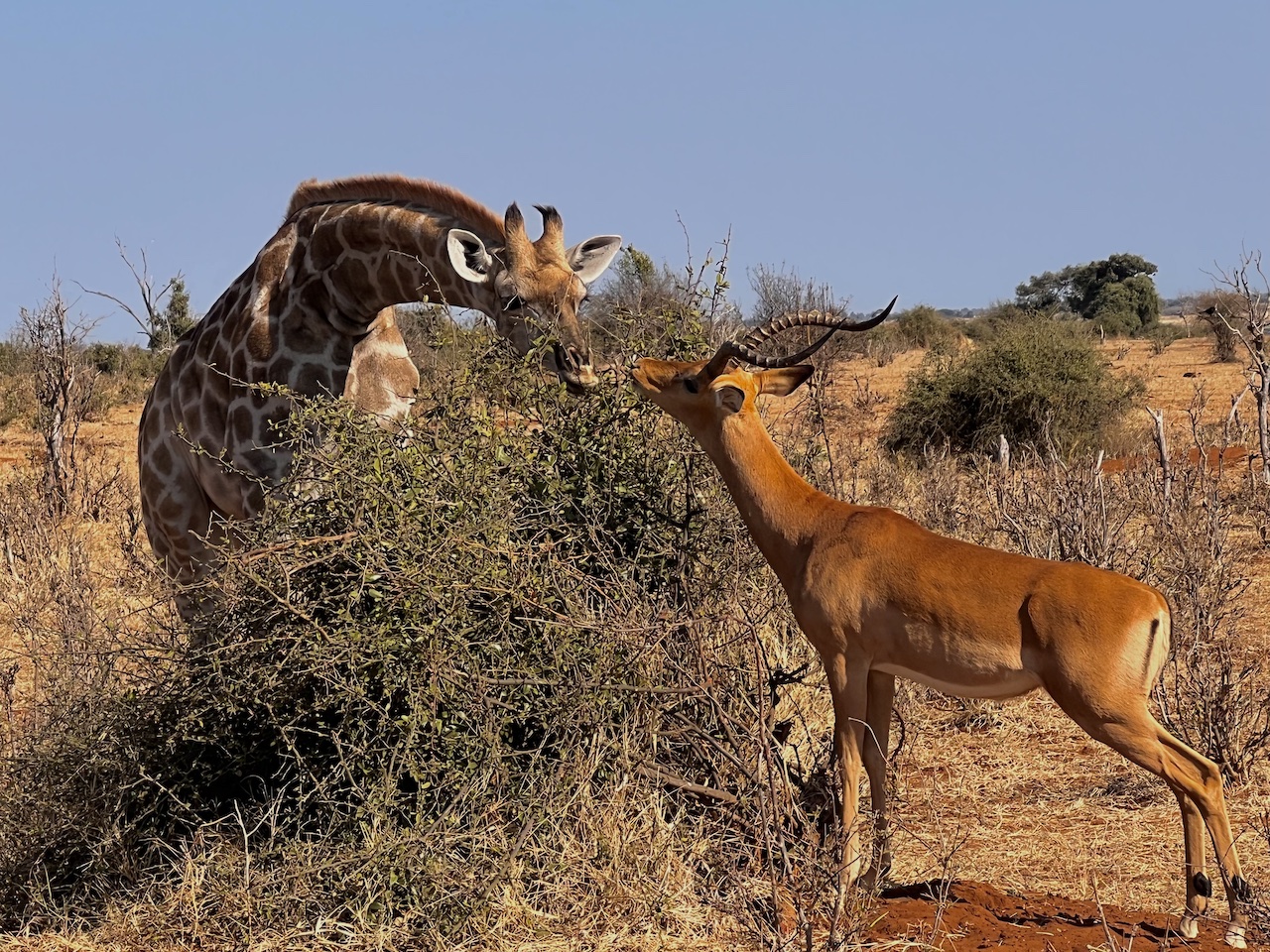
"Our time in Botswana will live on in our hearts forever. A day hasn't gone by where we haven't talked about some amazing and beautiful memory. In addition to all of the animals and beautiful scenes, we were so touched and enriched by all of the local people we met. The guides and staff were all so lovely. We were blessed to be able to connect with some of them. Despite growing up and living in such different circumstances, we spent time together talking, laughing, hugging and sharing stories. I've traveled enough to not be surprised by this connection, but it will never seize to touch my heart and enrich my life. The guides all loved my daughter and she loved them right back :). Needless to say, bringing my daughter back to Africa was such a powerful and meaningful life experience. Our time in Botswana enriched our lives and we are so grateful."
Andrea Kozil, USA
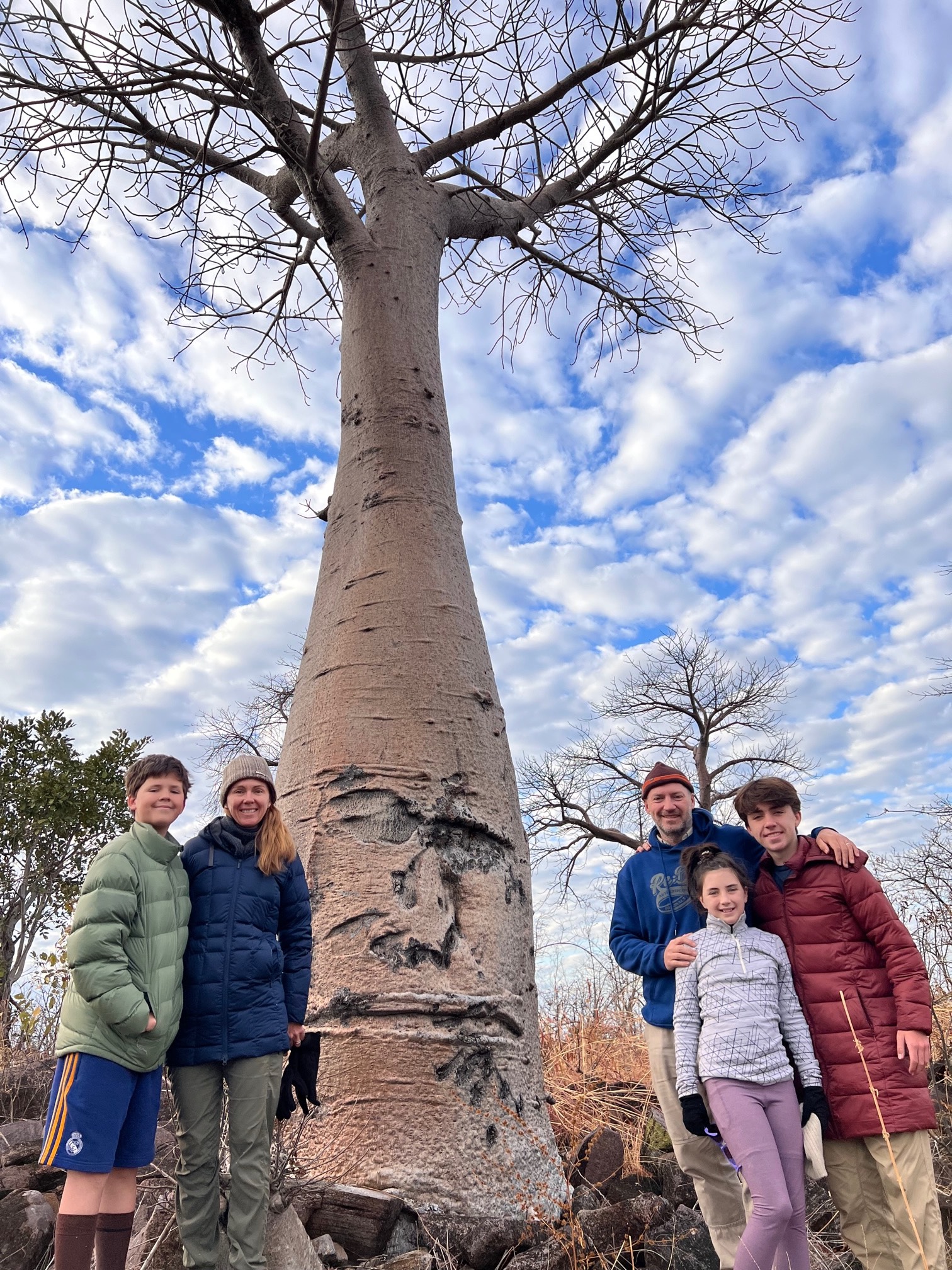
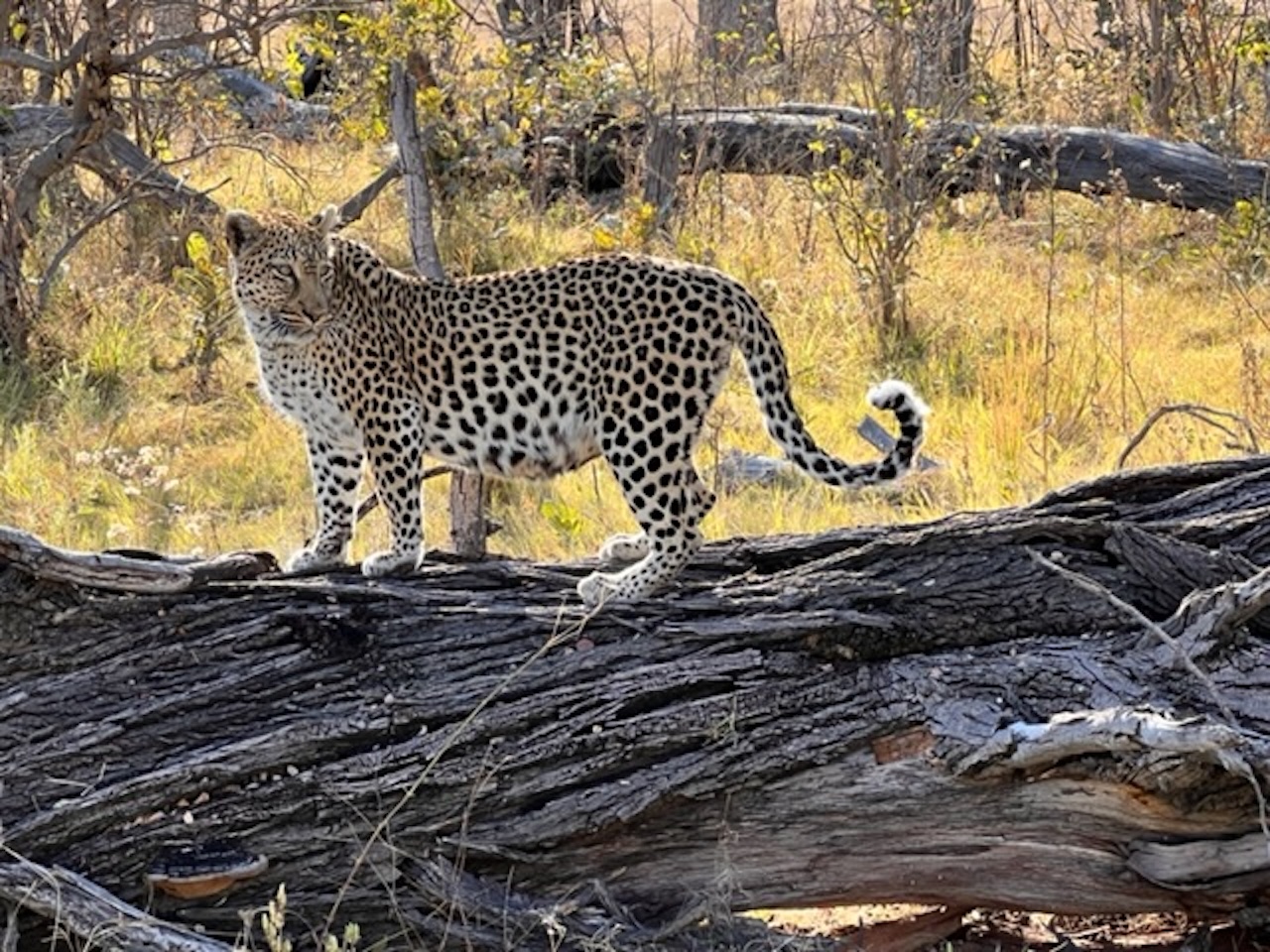
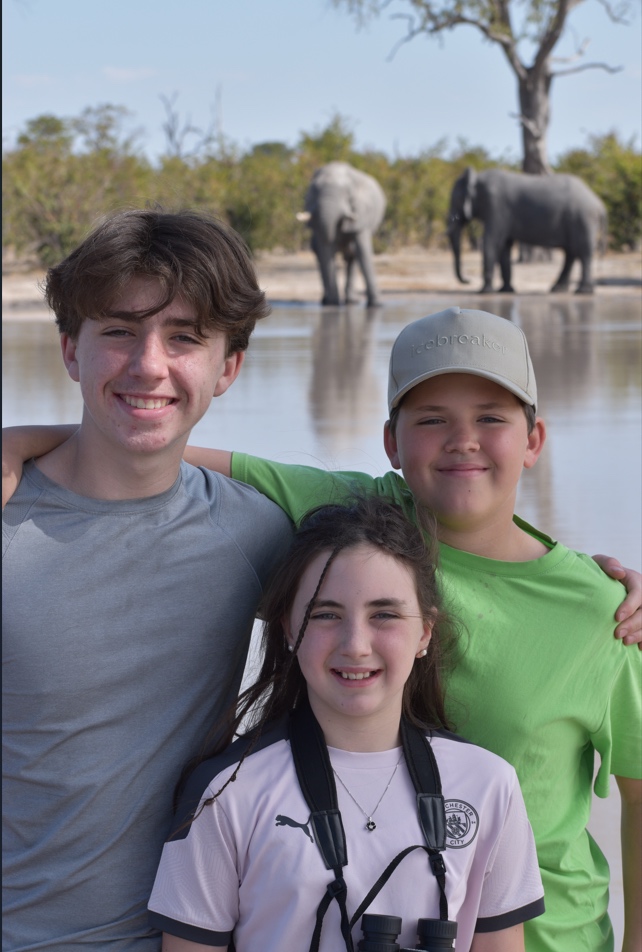

"We set out for a family adventure - and got exactly what we dreamed of.... all five of us loved every minute of the 10 days......Animals - breathtaking moments pretty much everyday.... ....Leopards stalking its prey on the road in front of us..... ....Lions mating before us, like a live biology lesson for the kids!! .... wild dog pups playing near their mum... .....families of mother and baby elephants drinking from the chobe river..... 3 metres from a sleeping croc on a river bank... too close for me!!!... impala's galore... the winners and losers....... happy hungry hippos sunbathing......Birds - "lordy lordy the "Birds of Botswana".....truly outstanding birdlife.... one day maybe 20 years from now... Margot and I will probably return to Botswana just to bird watch!!! The people - "Chief" our driver was remarkable - his communication skills with adults and our kids were superb... great humour, tremendous patience and an ability to read situations. an encyclopedic knowledge of the animals and an uncanny knack of finding the very best animals early each morning."
Christopher Lilley, Sydney/UK
Singapore Elephant Event - Royal Geographical Society: 8th September
Two years ago I was about to head over to Singapore to speak about my elephant work in Rwanda at the Royal Geographical Society, but then Covid kicked in... It's been a while Singpaore, but I'm delighted to say that I'm coming back to talk about elephants for the Society on the evening of Thursday 8th September from 7-9pm at Catapult, #02-01 Rochester Commons, 1 Rochester Park, 139212 (Auditorium 2). I'll be sharing the latest results on our work to create the first photographic identification database for elephants in Akagera National Park, our work to build local capacity among local guides, park staff and researchers, and plans for the future of the project. There will also be an update on all things elephant news from the last few years, including during the Covid-19 pandemic. If you've ever wondered what Rwanda is like, it's a good chance to learn more about this amazing part of Africa, home of the mountain gorillas. Bring your friends!
Click here to book your ticket to my elephant talk in Singapore on 8th September.

Elephants and Climate Change
CITES' Monitoring the Illegal Killing of Elephants (MIKE) program recently reported that illegal killings (poaching) of elephants has continued to decline since about 2014 (latest report here) on the back of the global outcry against illegal ivory trade that led to the ivory bans in China and the USA in 2016/17, but a lot of people aren't aware that climate change is an increasing issue for elephants. Kenya's Ministry of Environment and Tourism just announced that climate change is now killing more of Kenya's elephants than poaching. Climate change is making much of Africa drier and hotter, creating greater extremes like droughts, and this is placing more pressure on already limited water supplies shared by elephants and people. We are going to see more human-elephant conflict as a result. An adult African elephant can drink about 200 Litres in a day and eat up to 400kg of food. The drought currently affecting countries like Kenya in the Horn of Africa is severely impacting peoples' lives, causing famine, and as we all know, when people suffer, wildlife ends up suffering too.
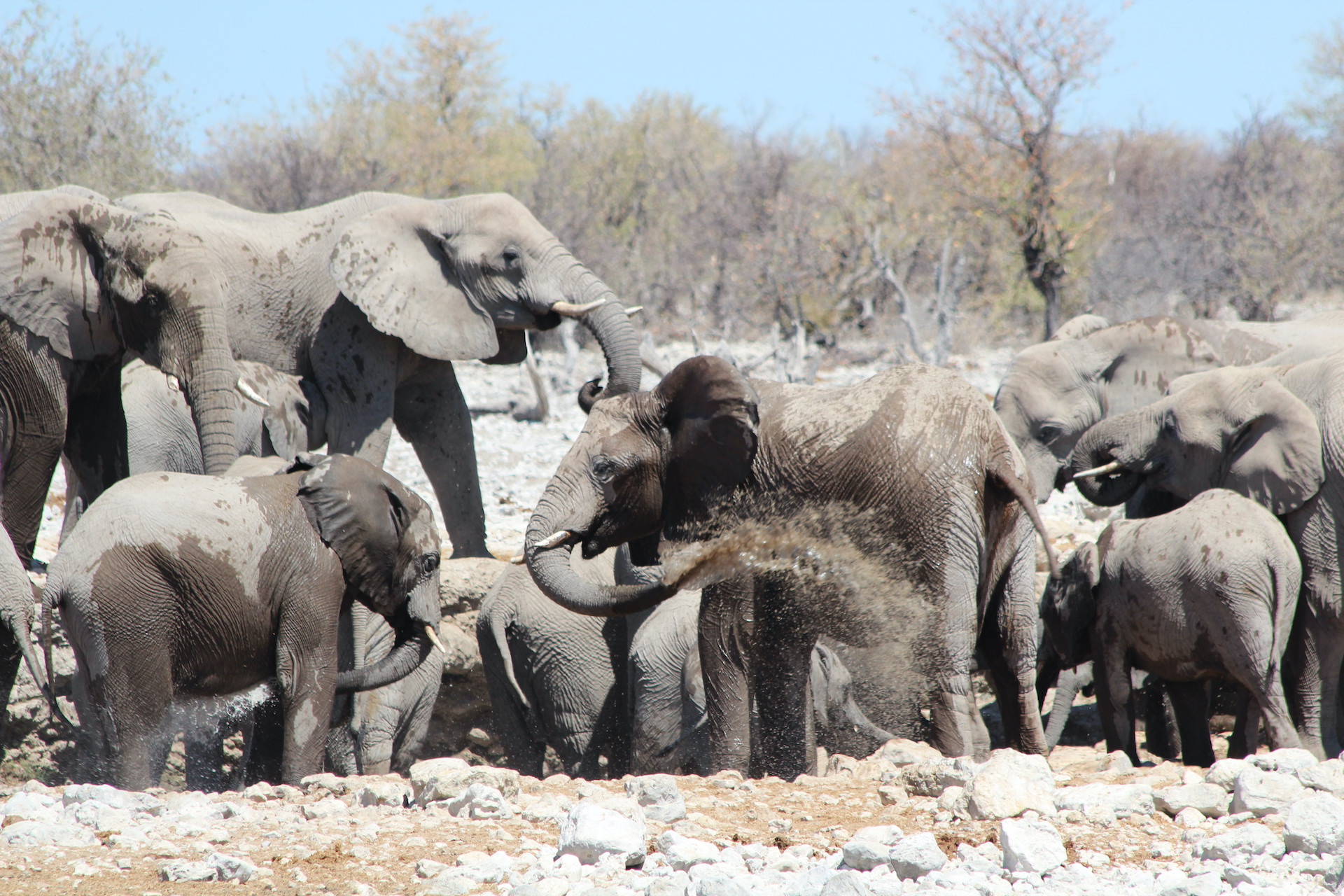
Upcoming Safaris
If you're still contemplating going on safari in 2023, why not snap up one of the rooms on my safaris in Botswana and Tanzania in May/June? I have one room left at a cracking price for a couple on my Green Season Serengeti Safari (23-30 May) and two rooms on my Botswana Highlights Safari (17-24 June). I'll be setting off for Rwanda in a few months with my group of citizen scientists to get back into the field data collection for Akagera's Elephant Database and to run a field course in elephant identification for Rwandan guides and Akagera National Park staff. I can't wait!
